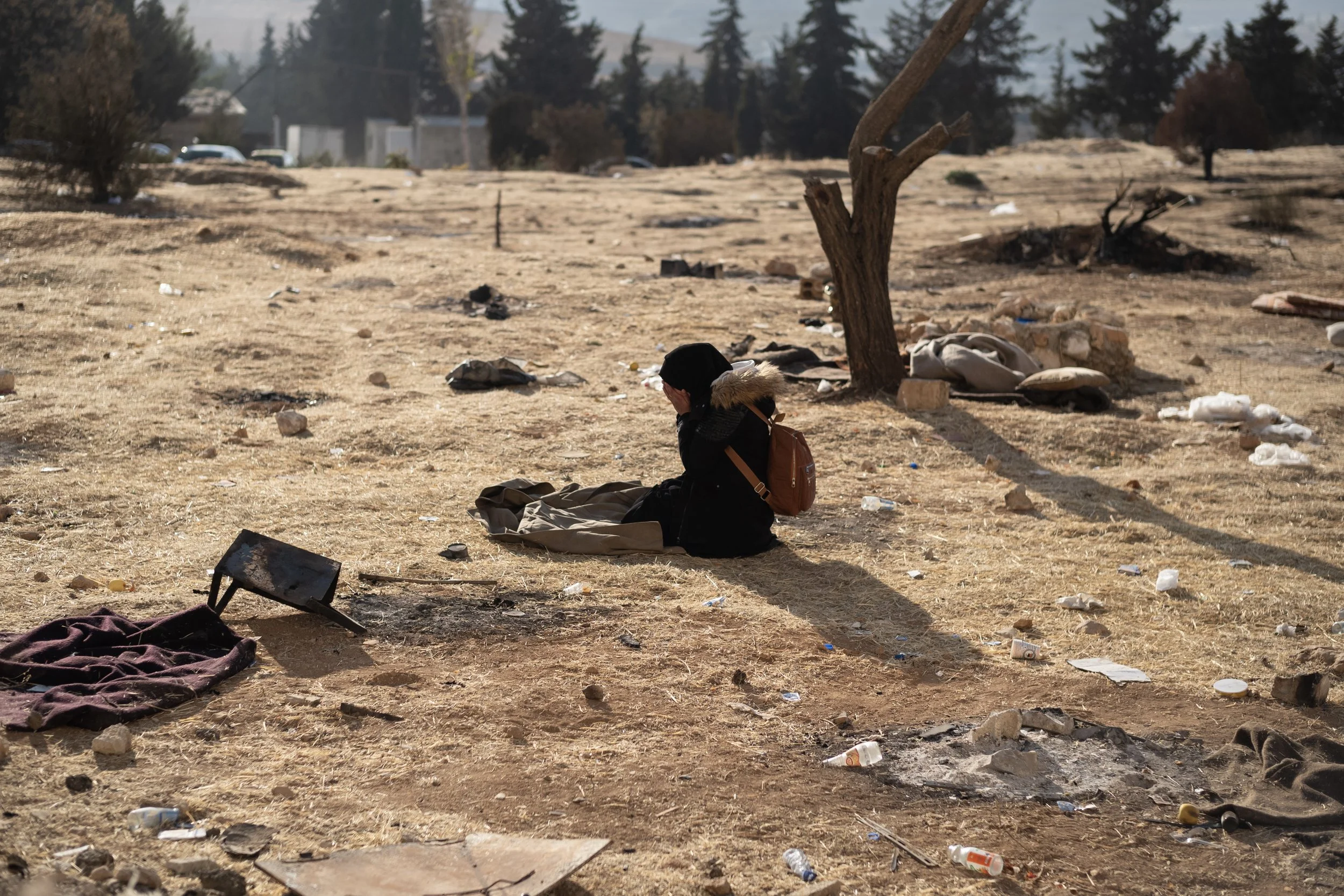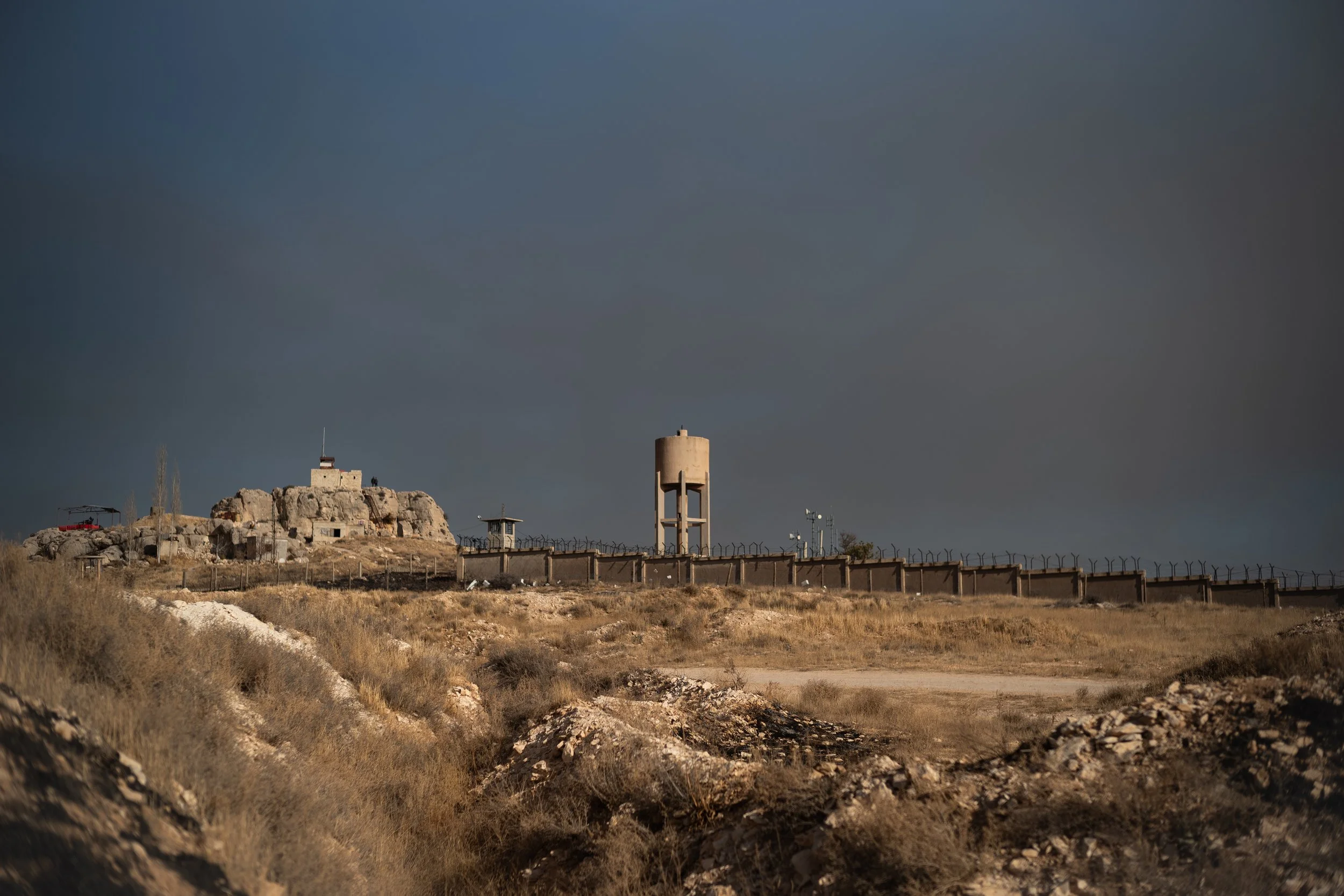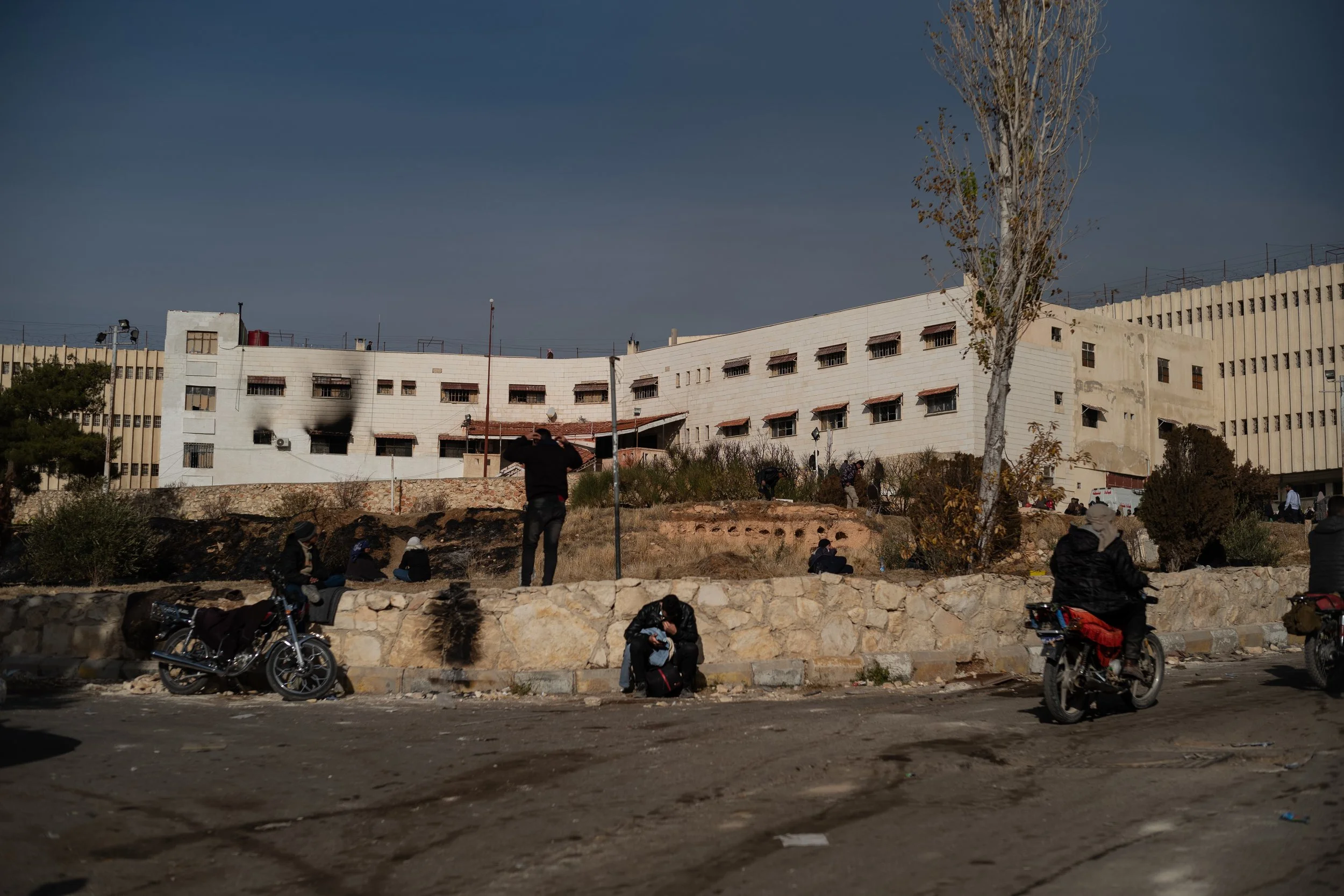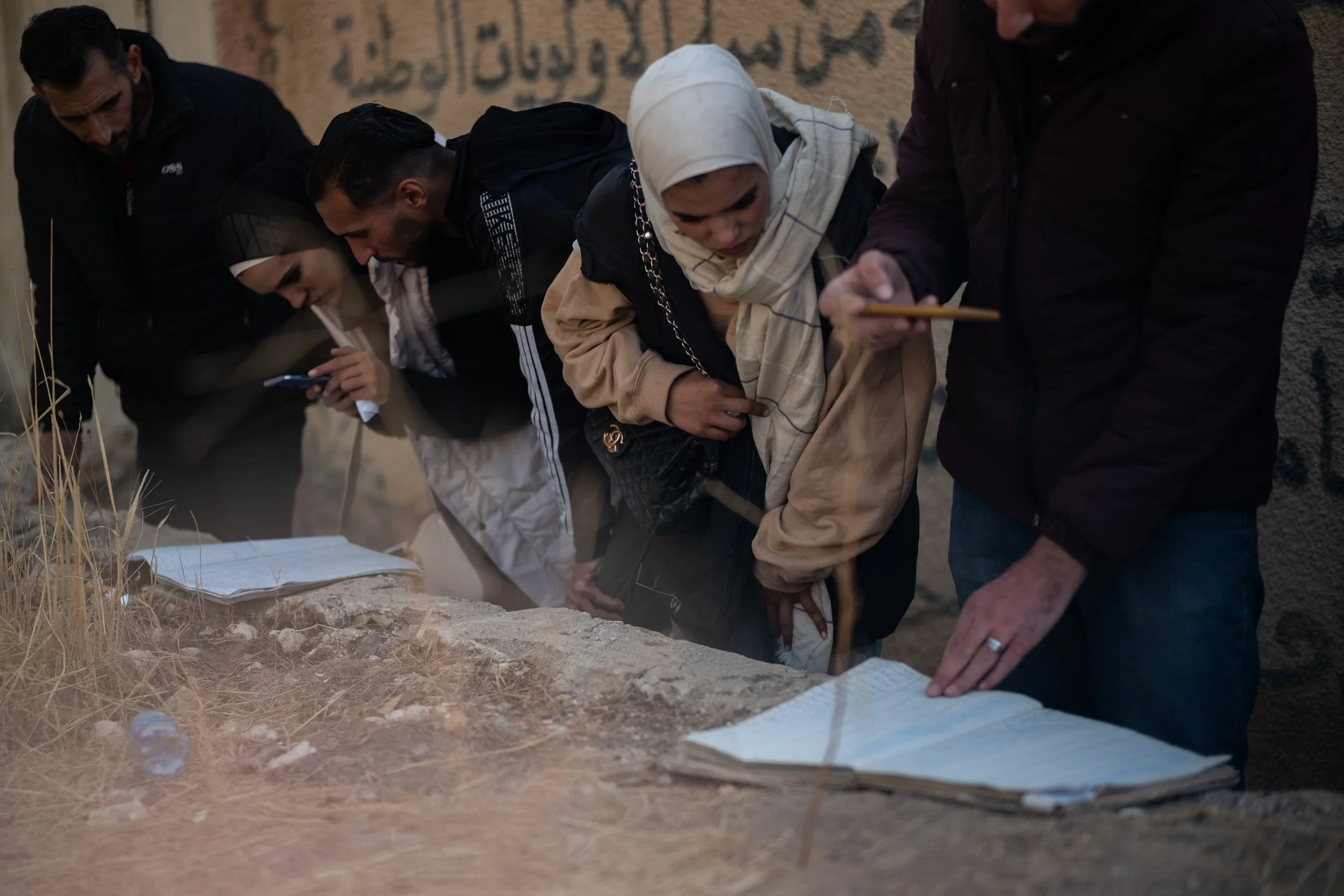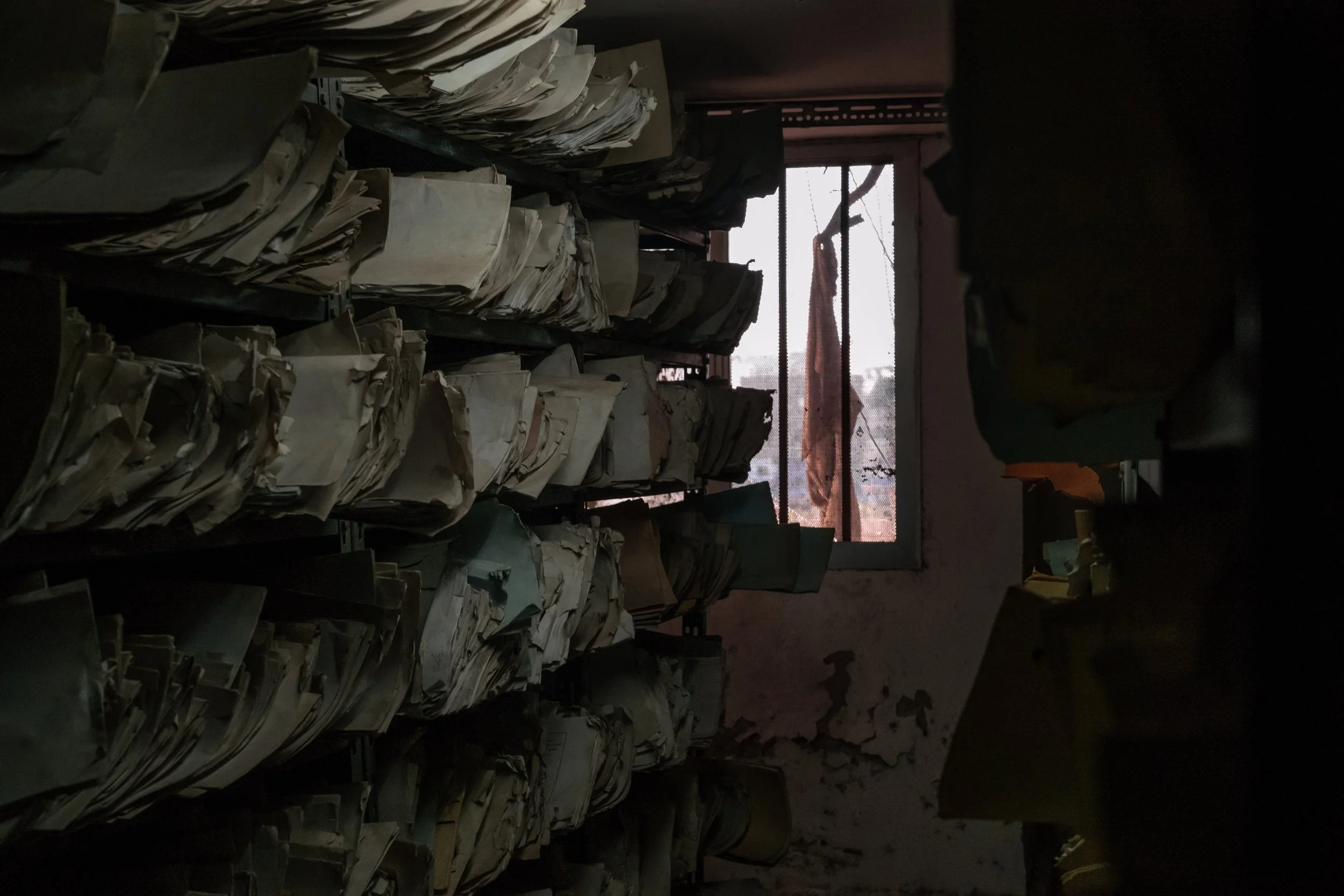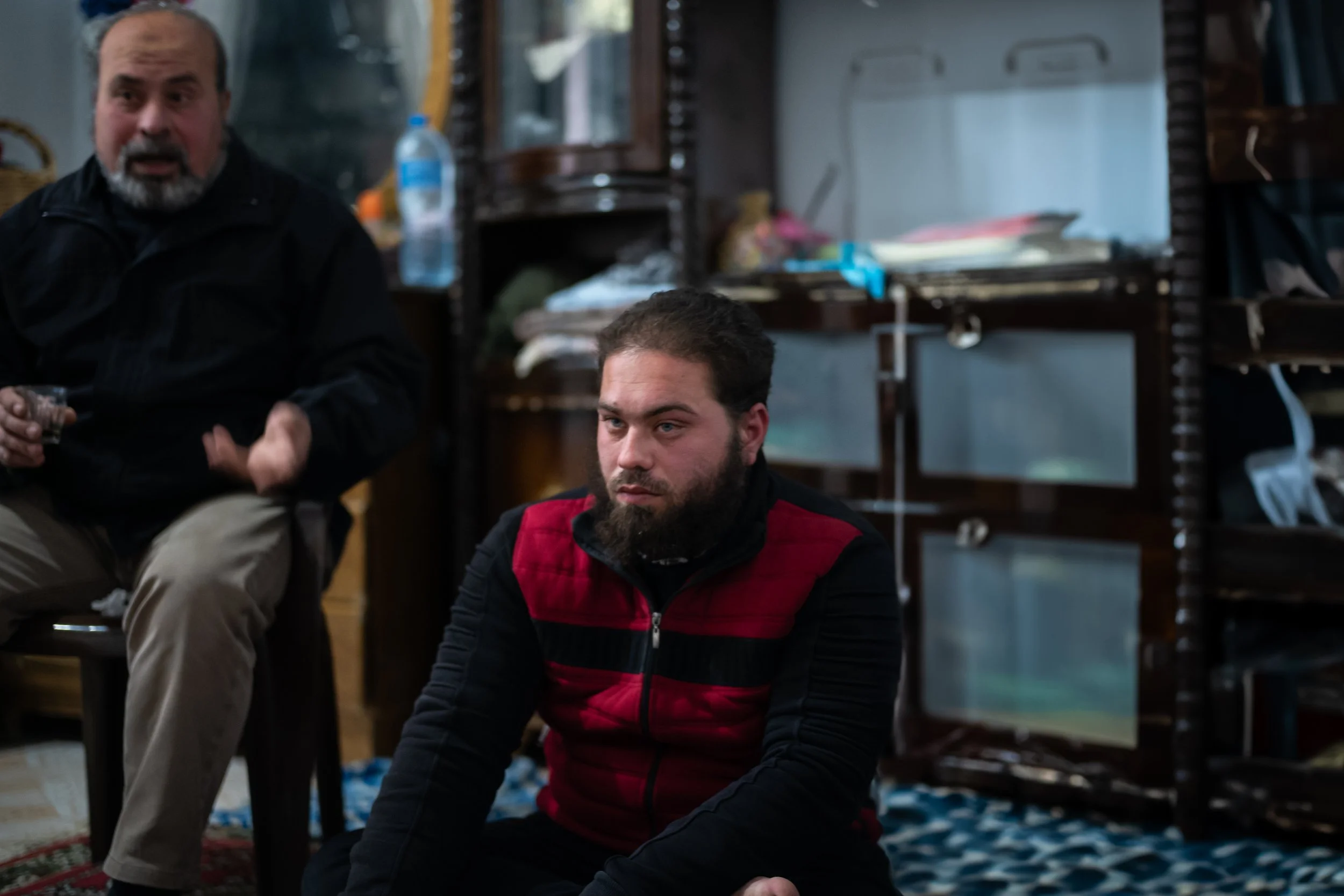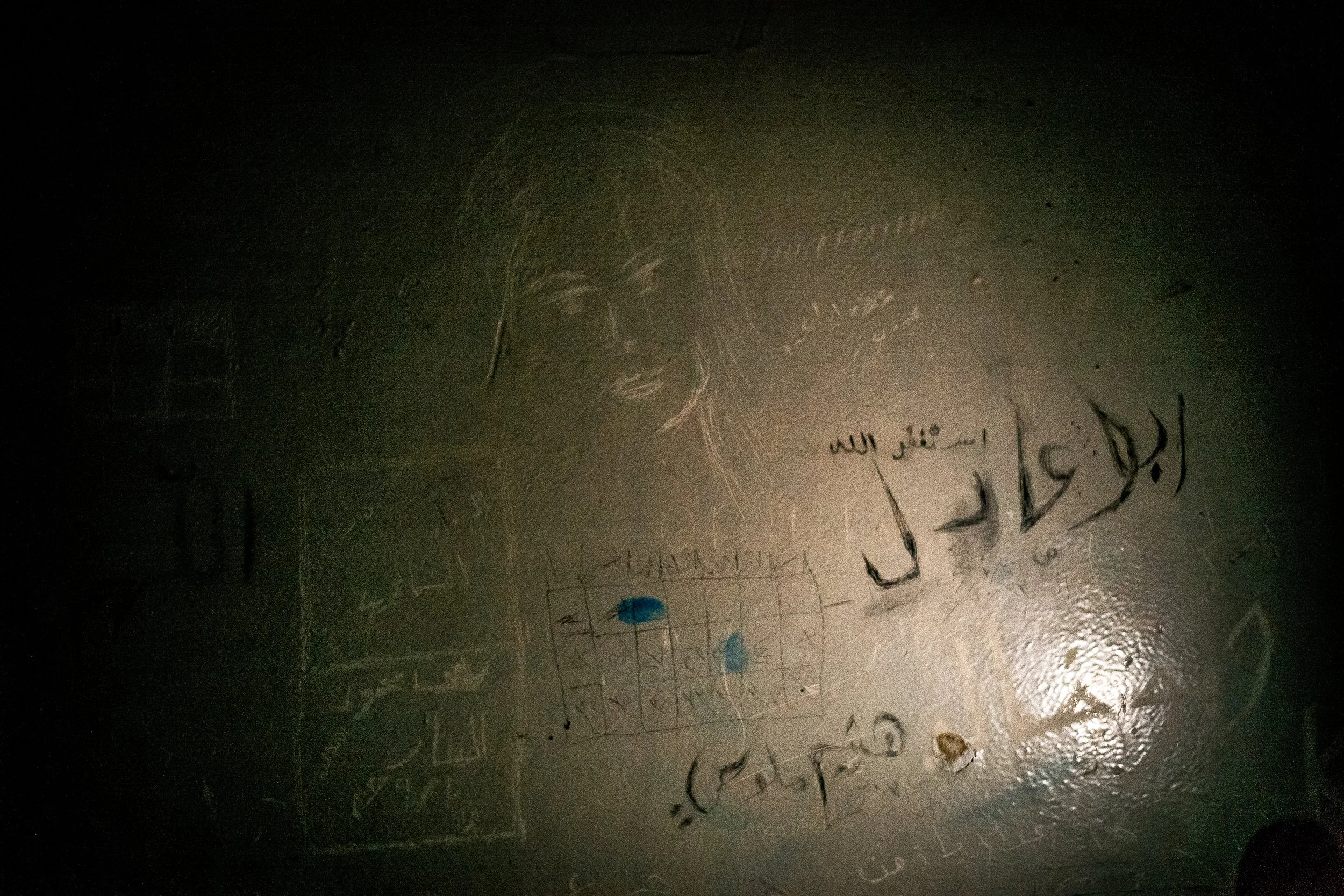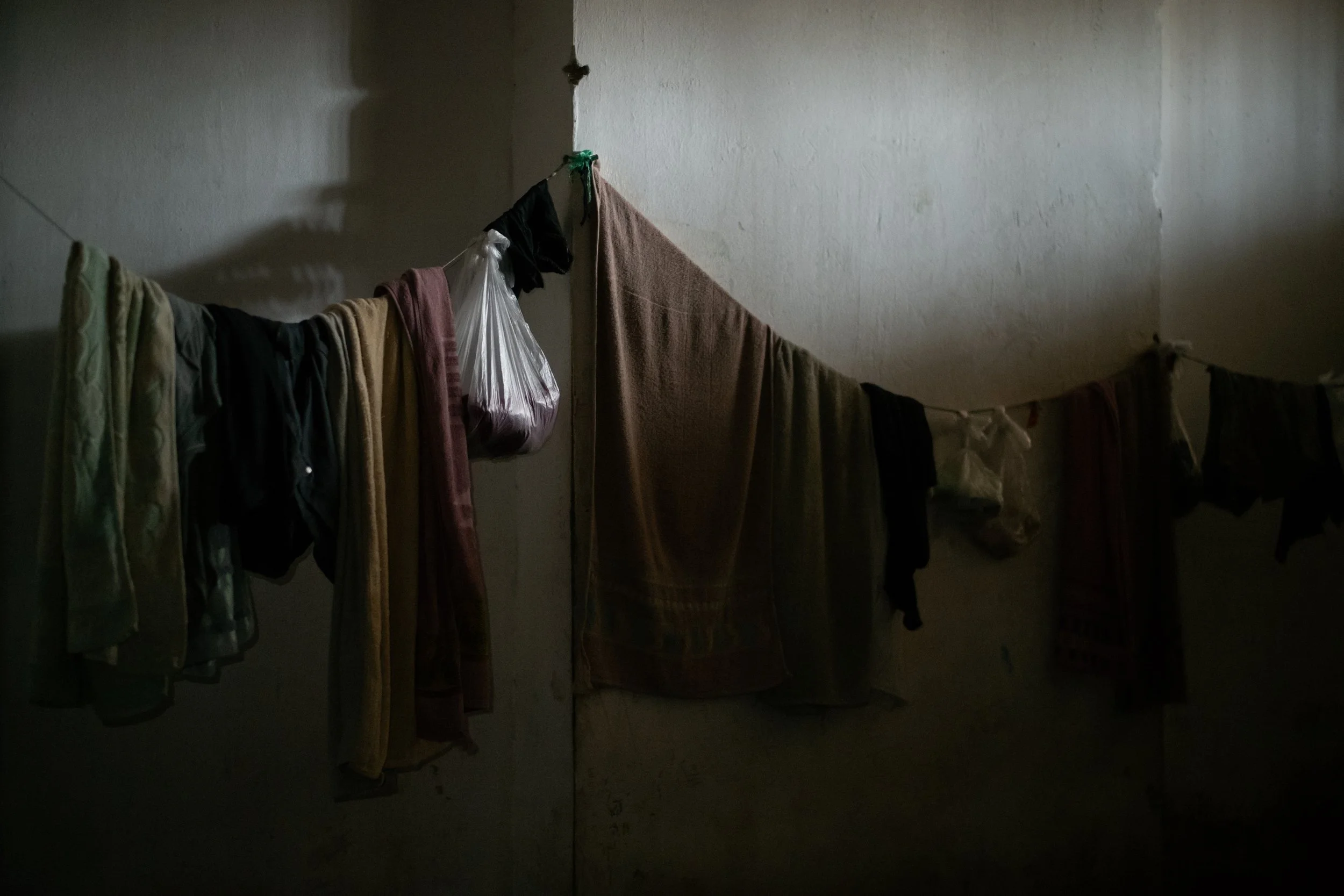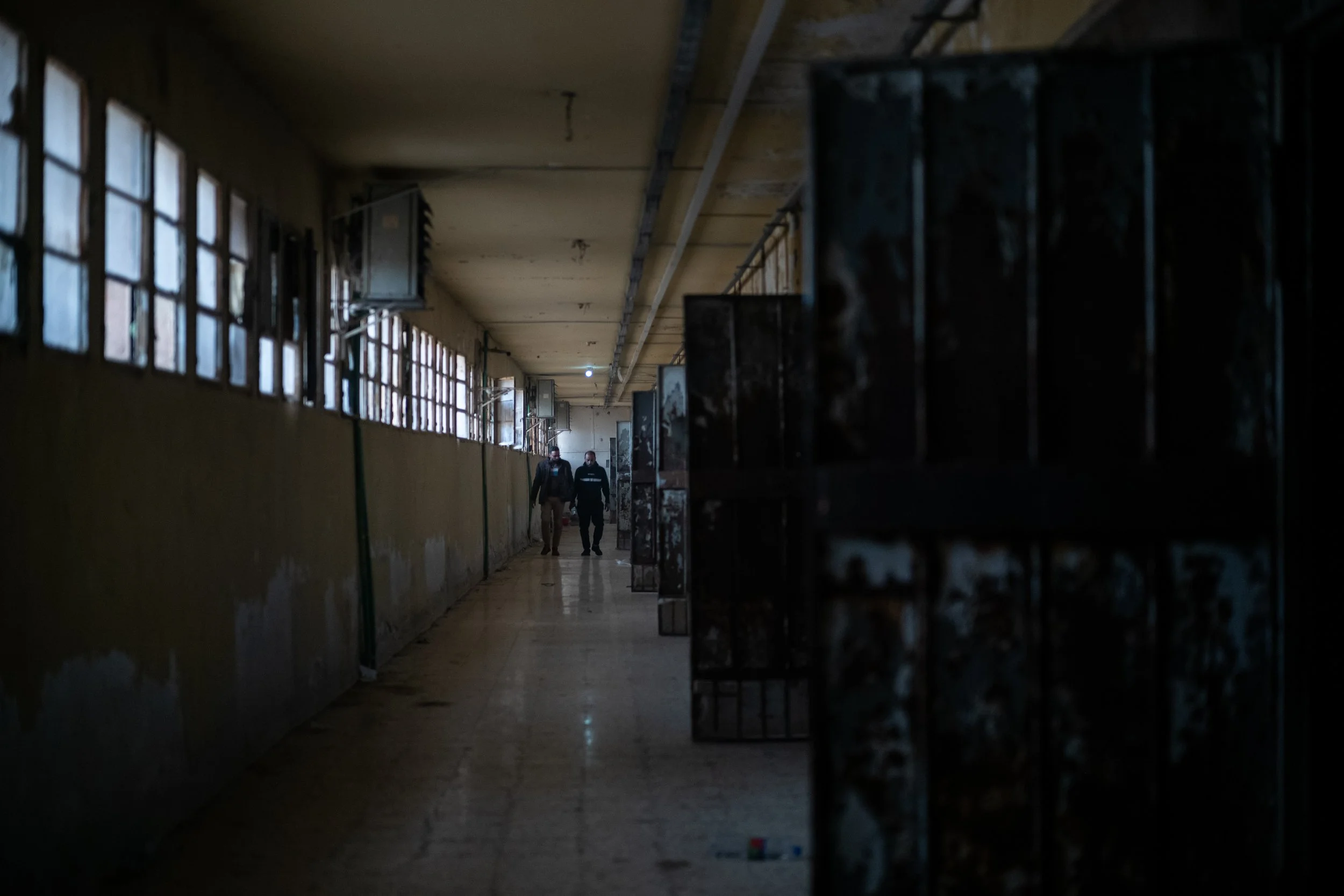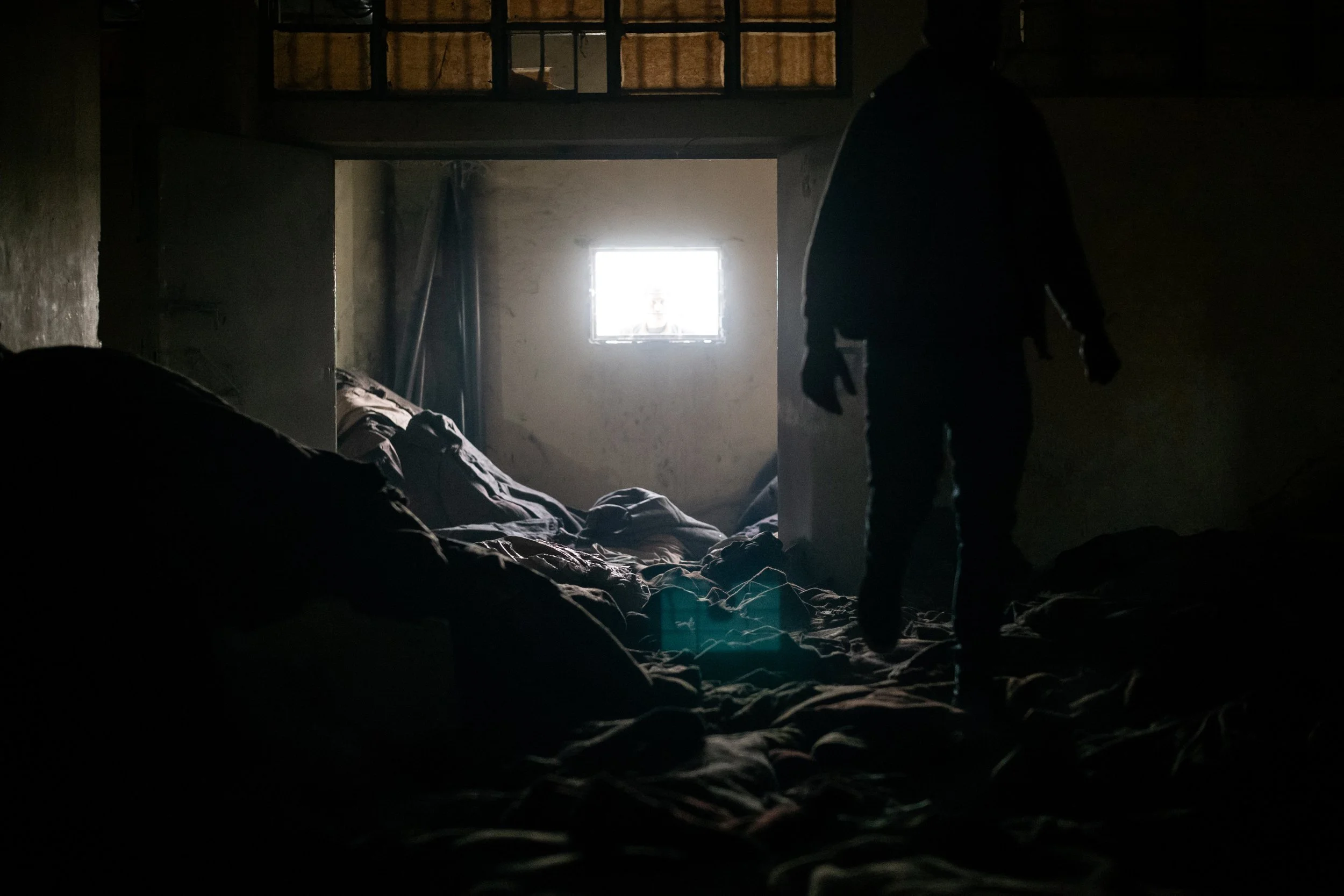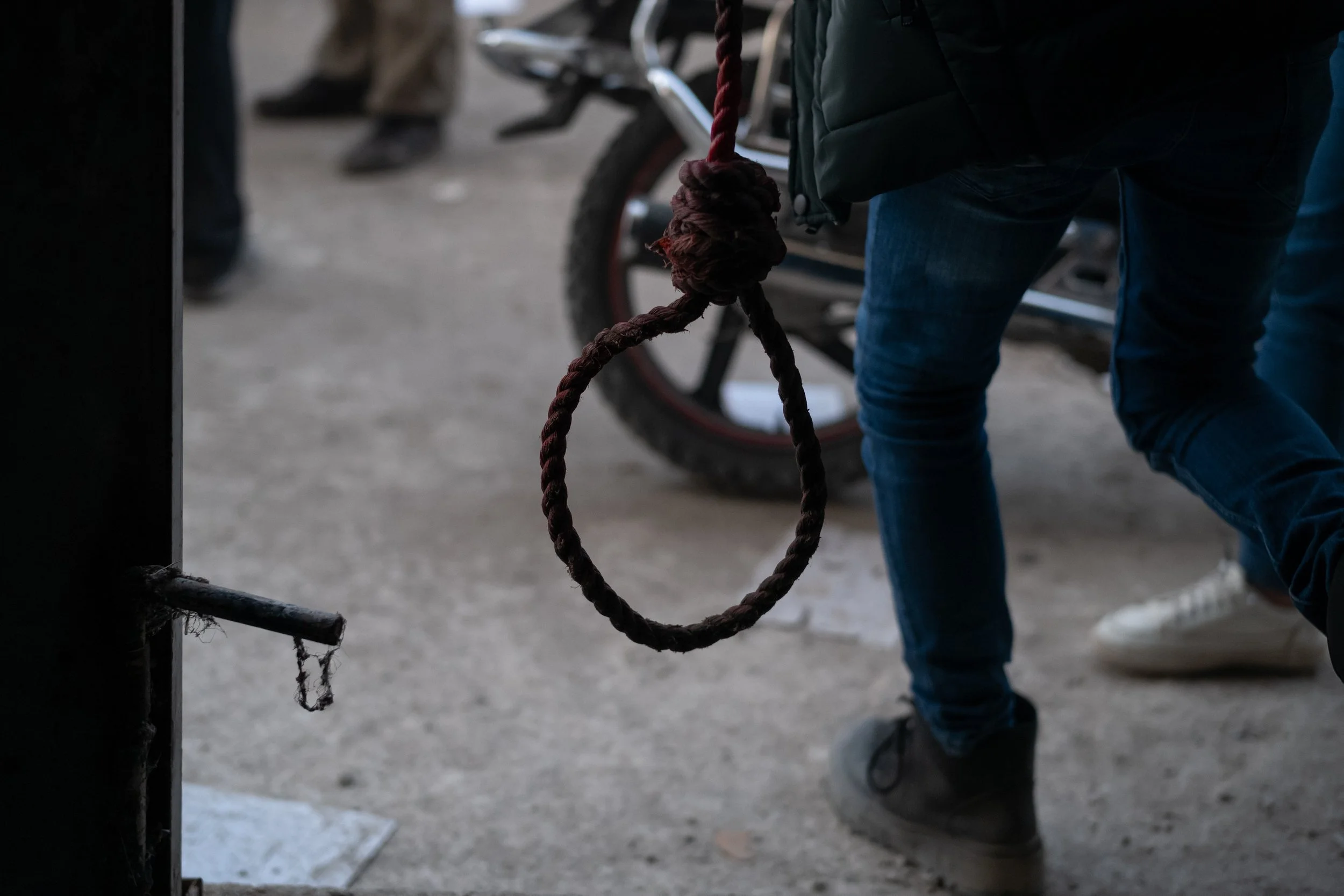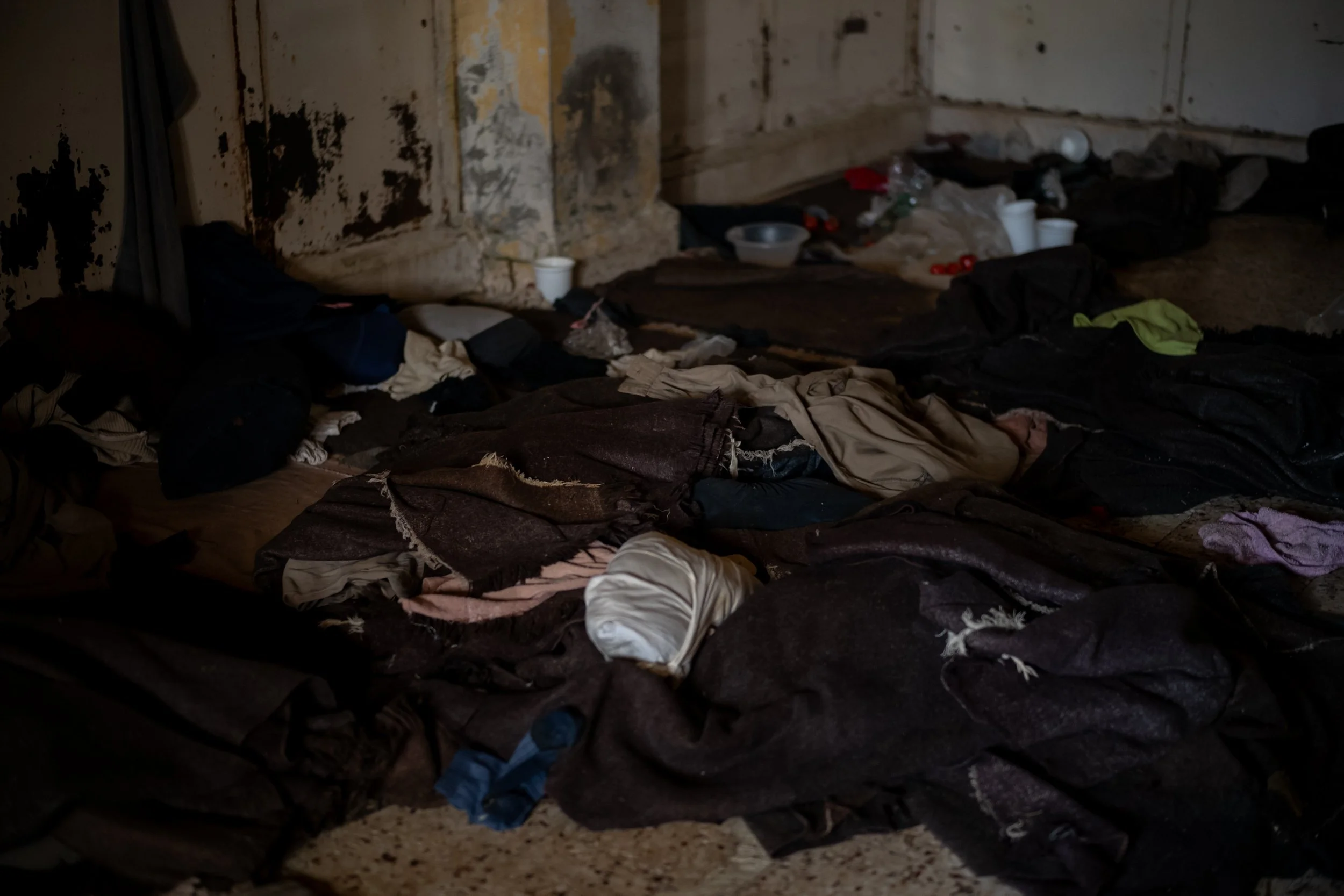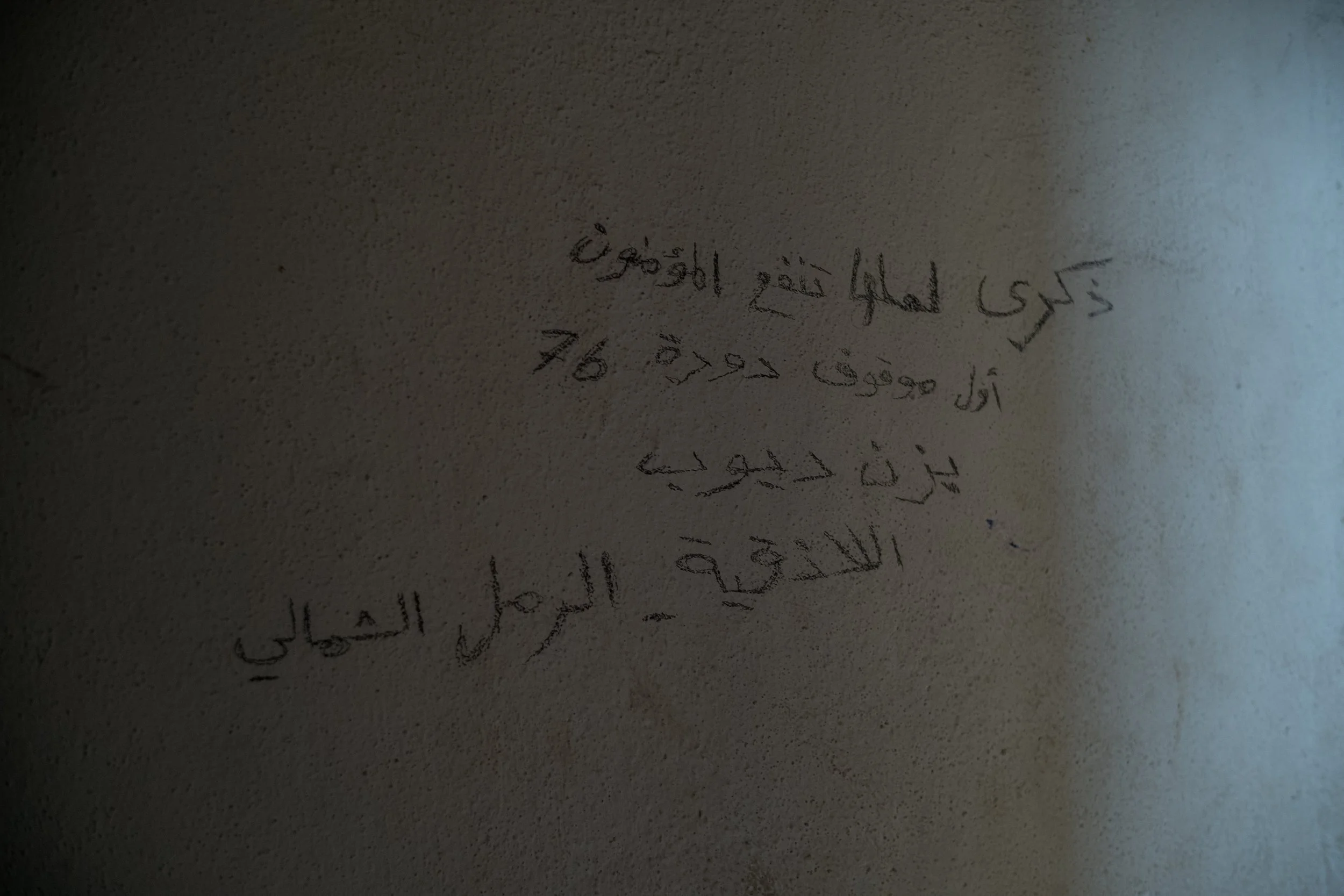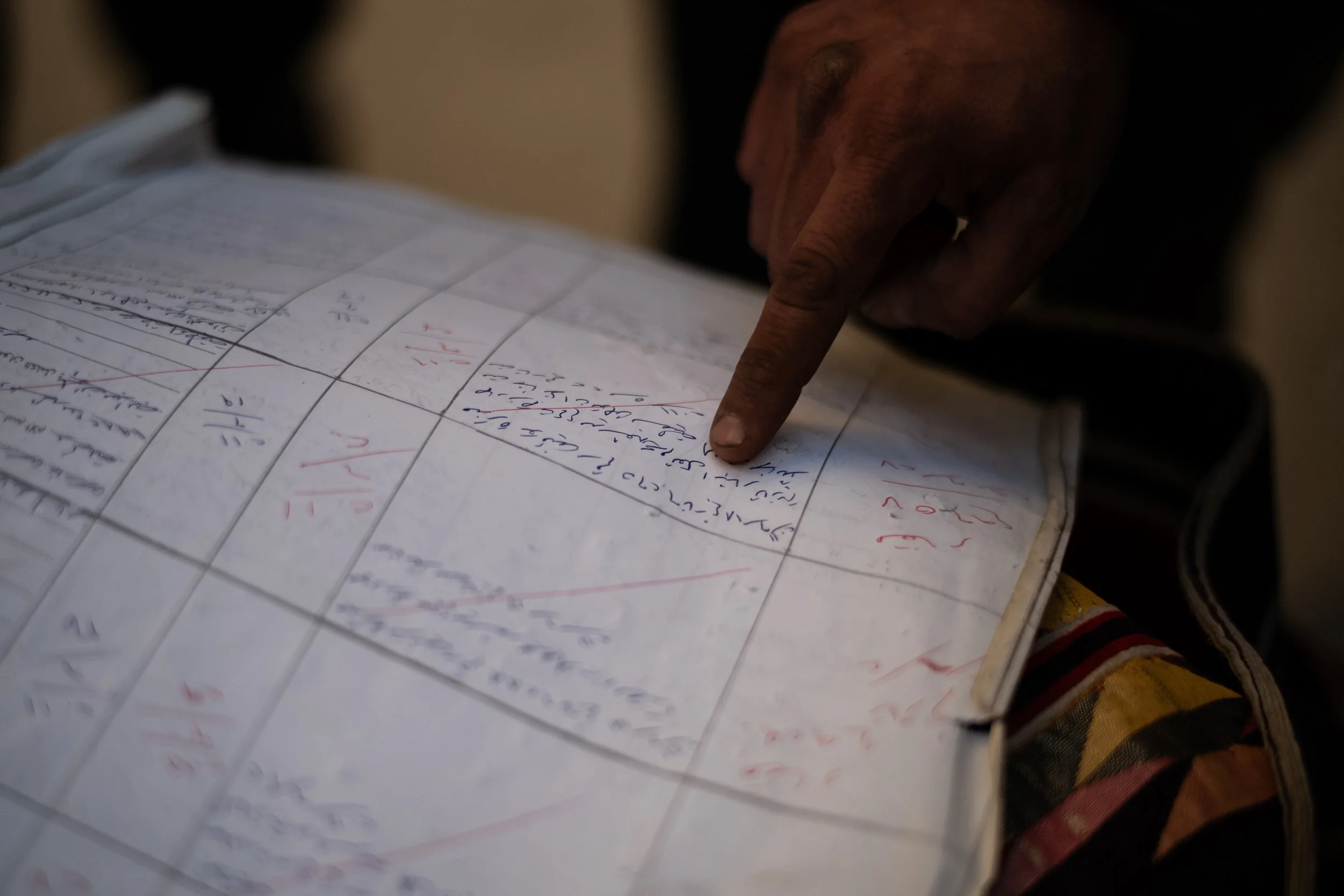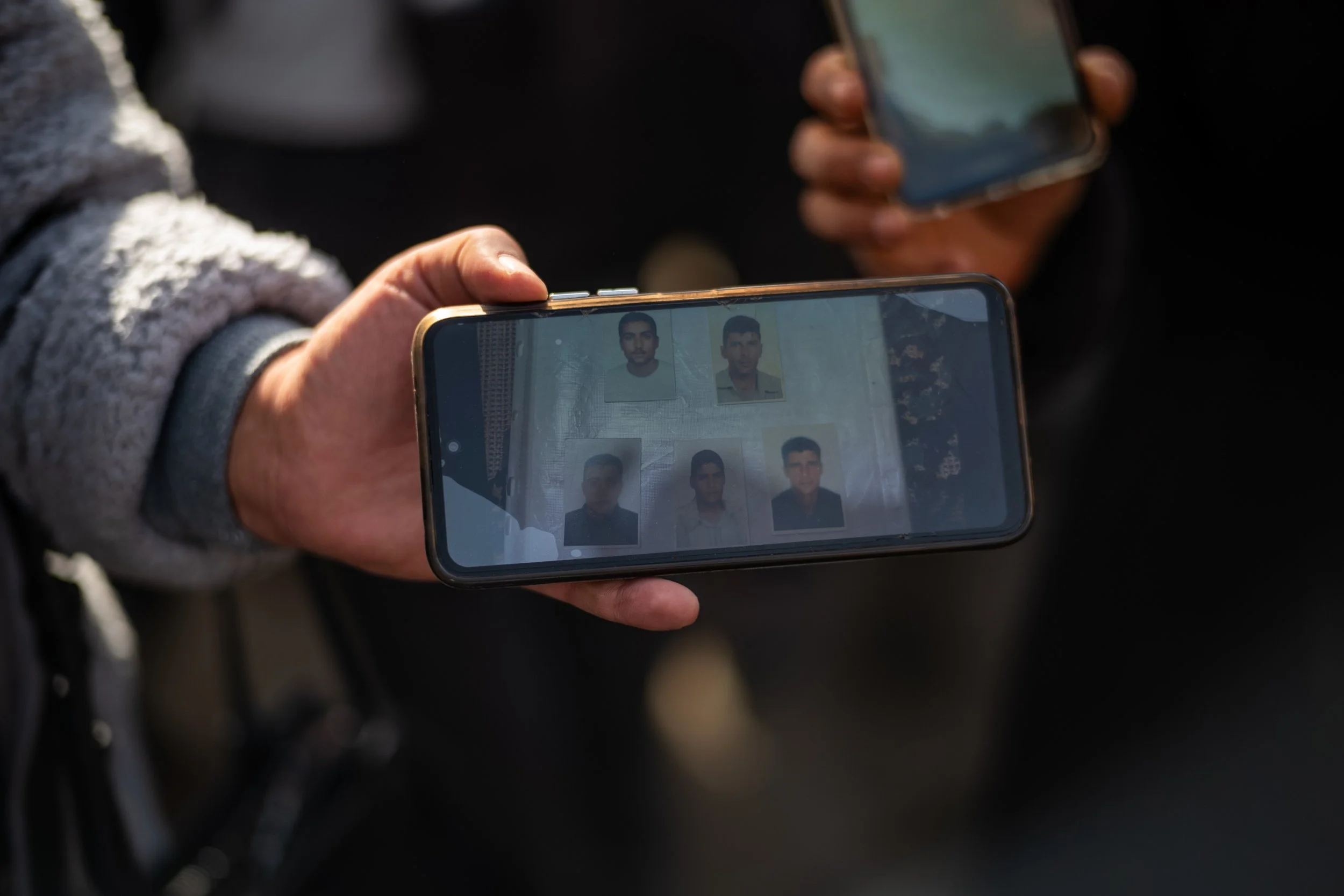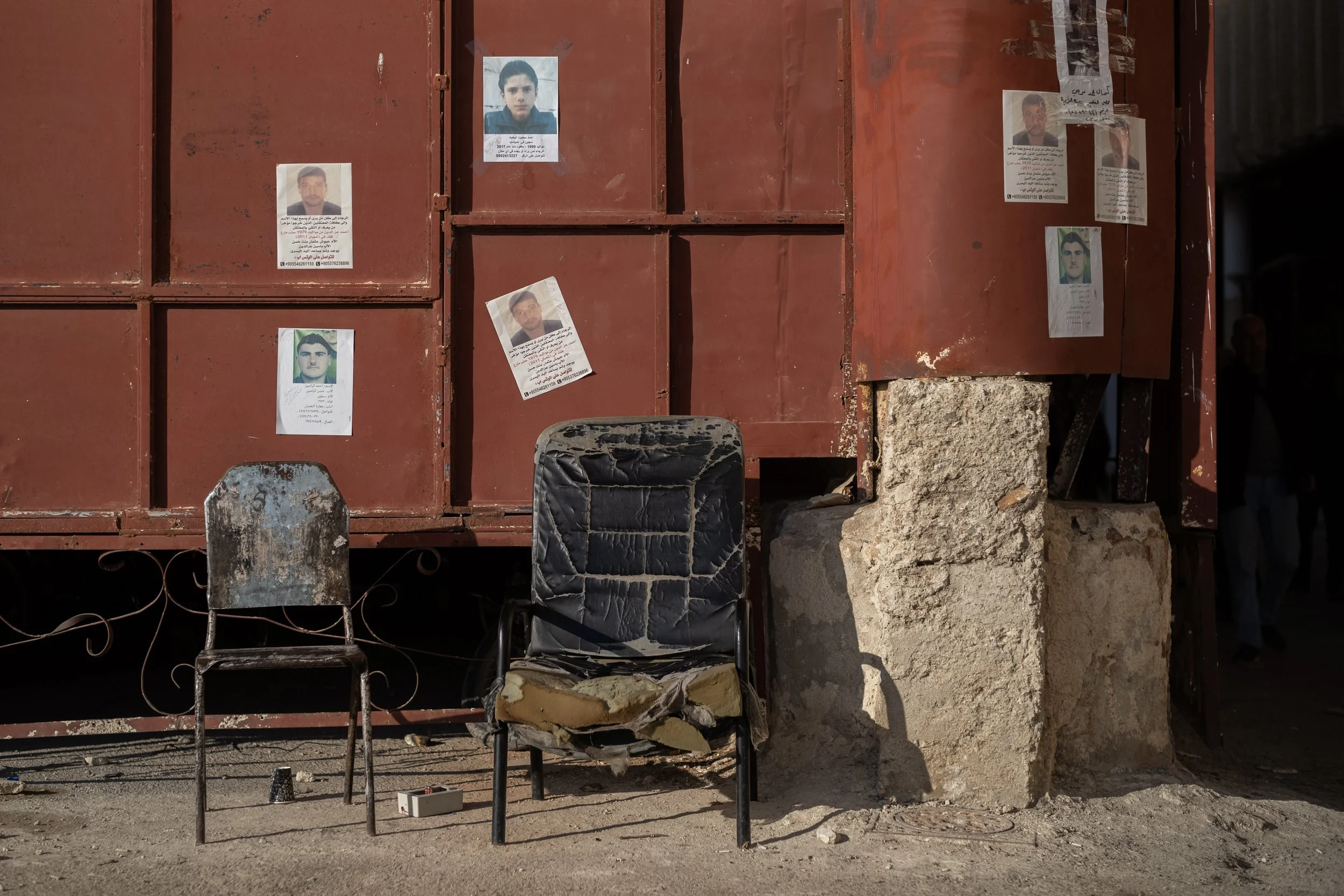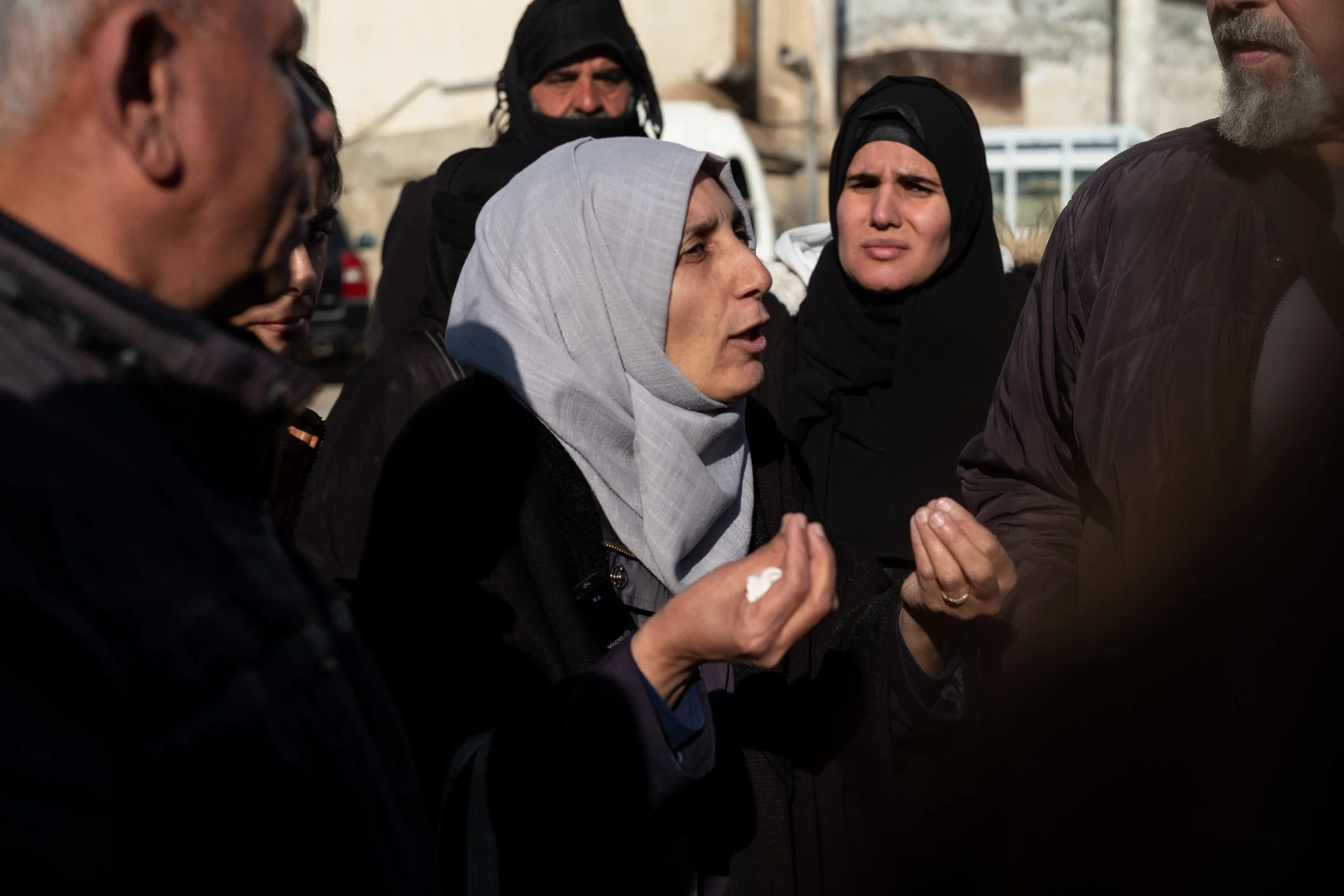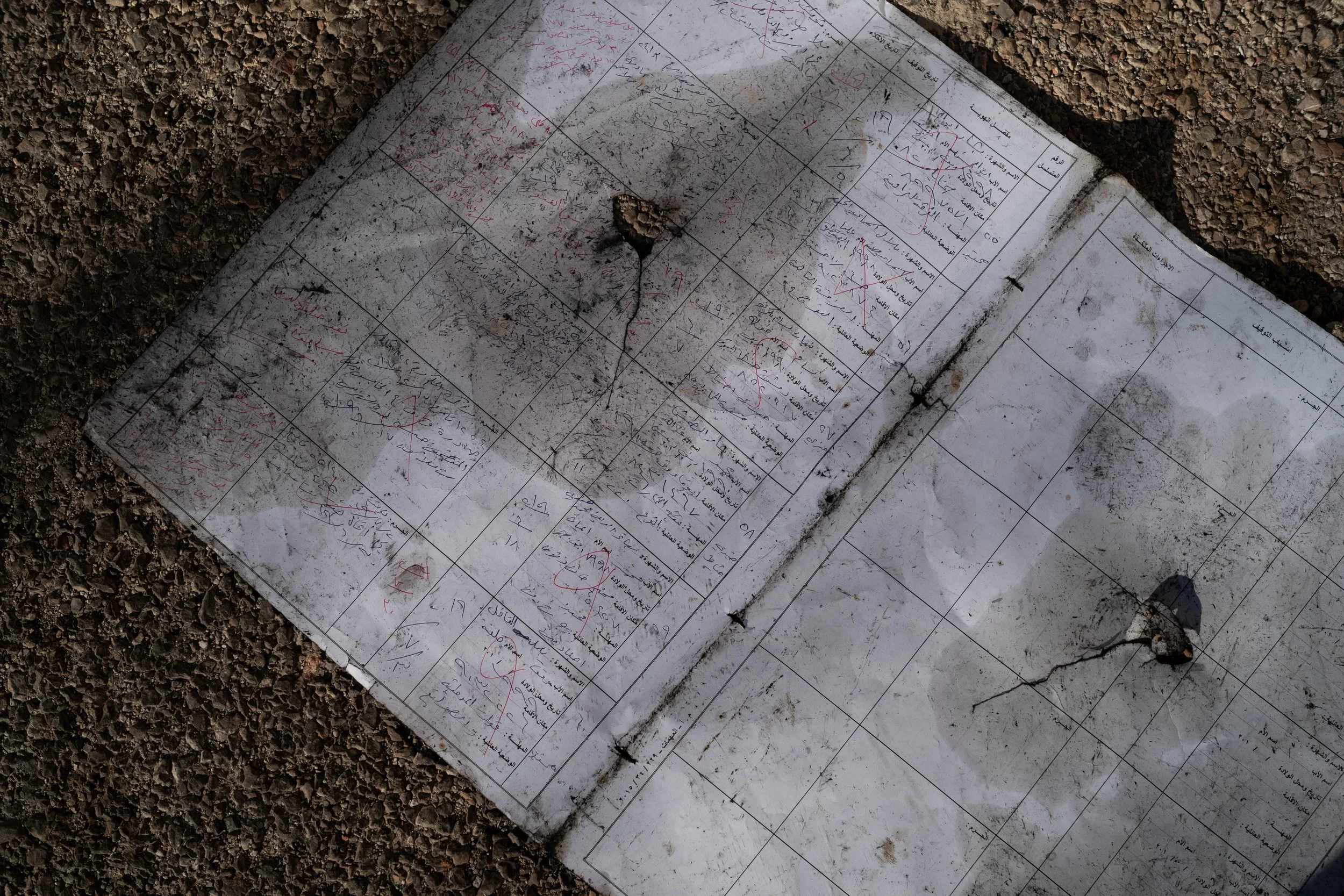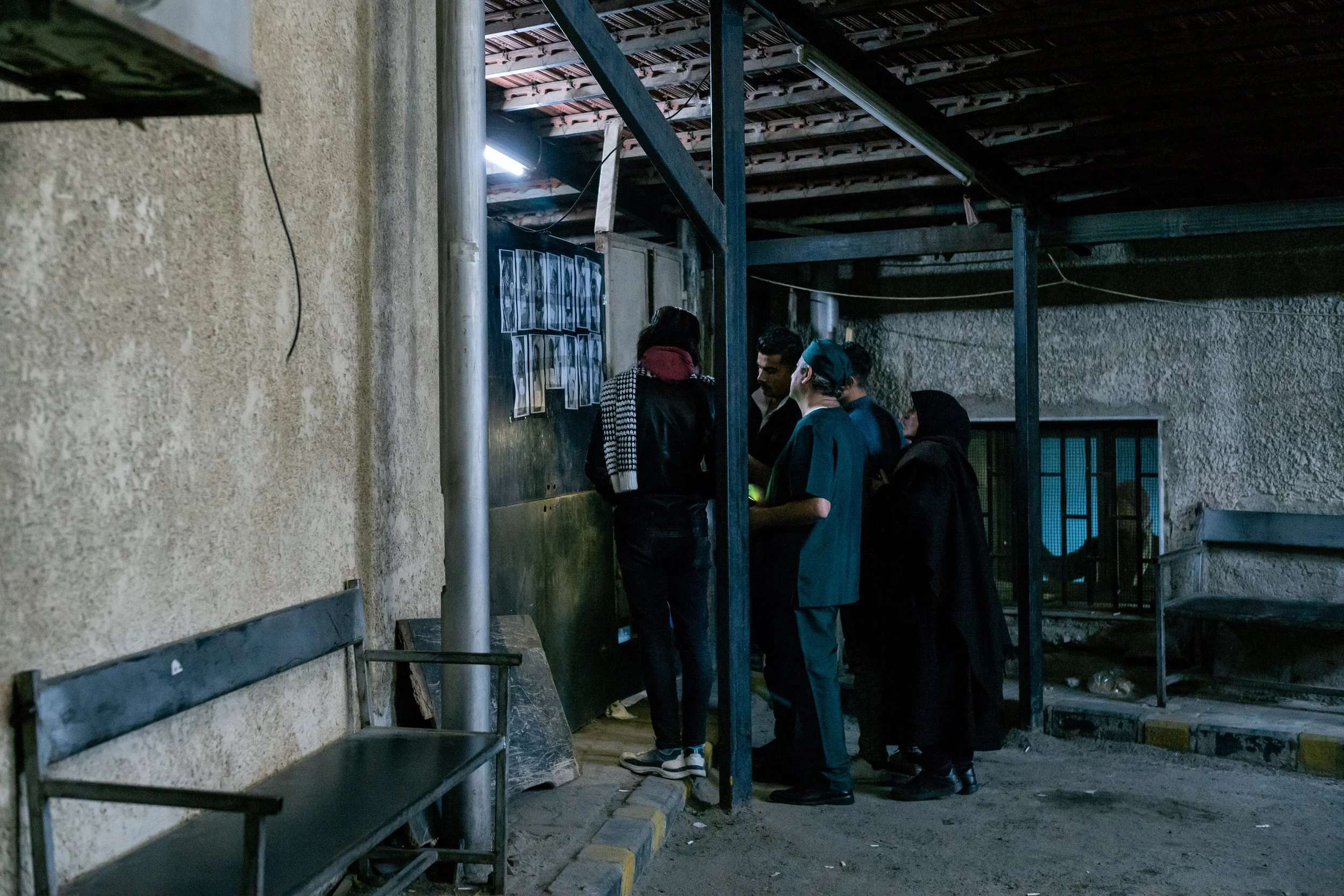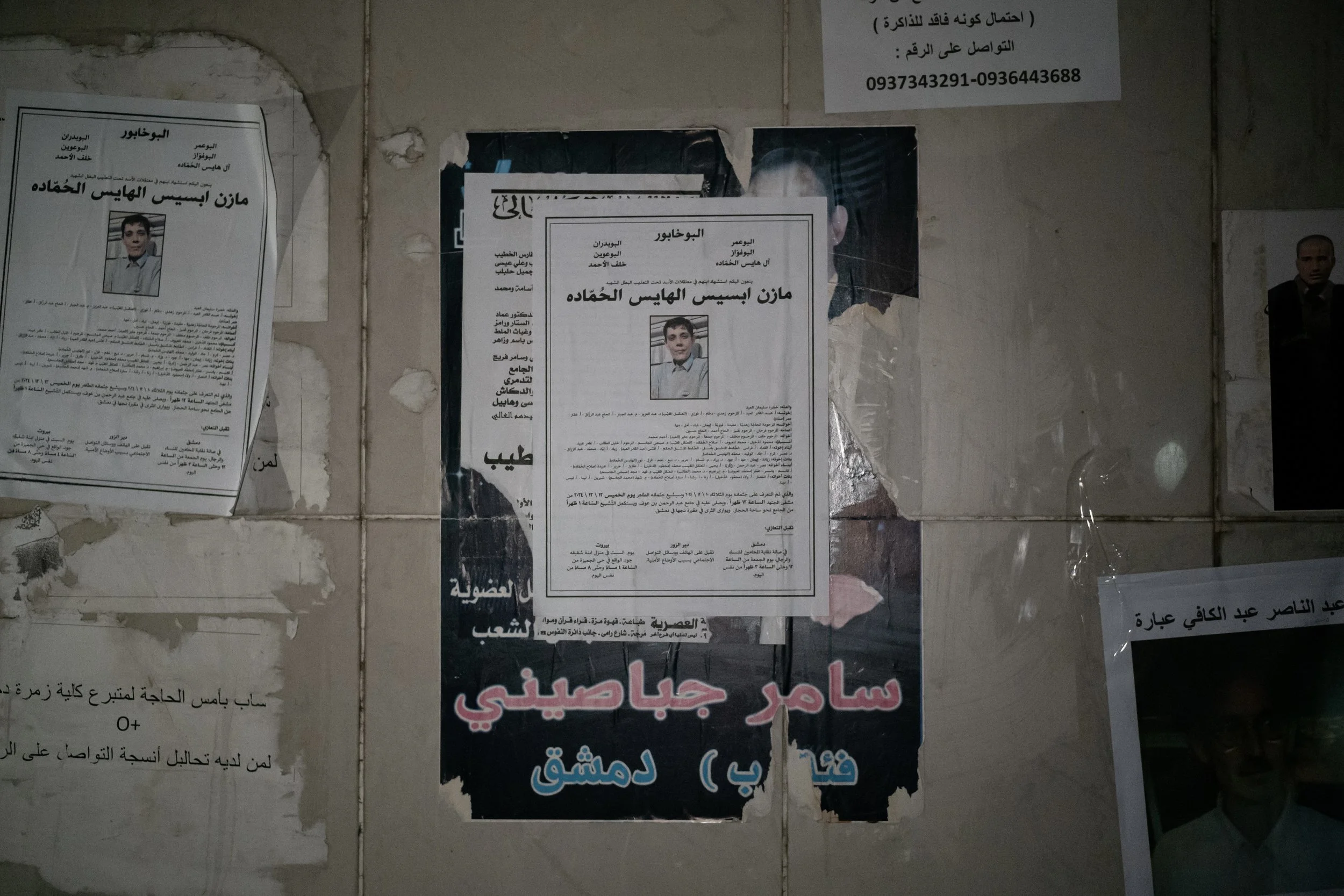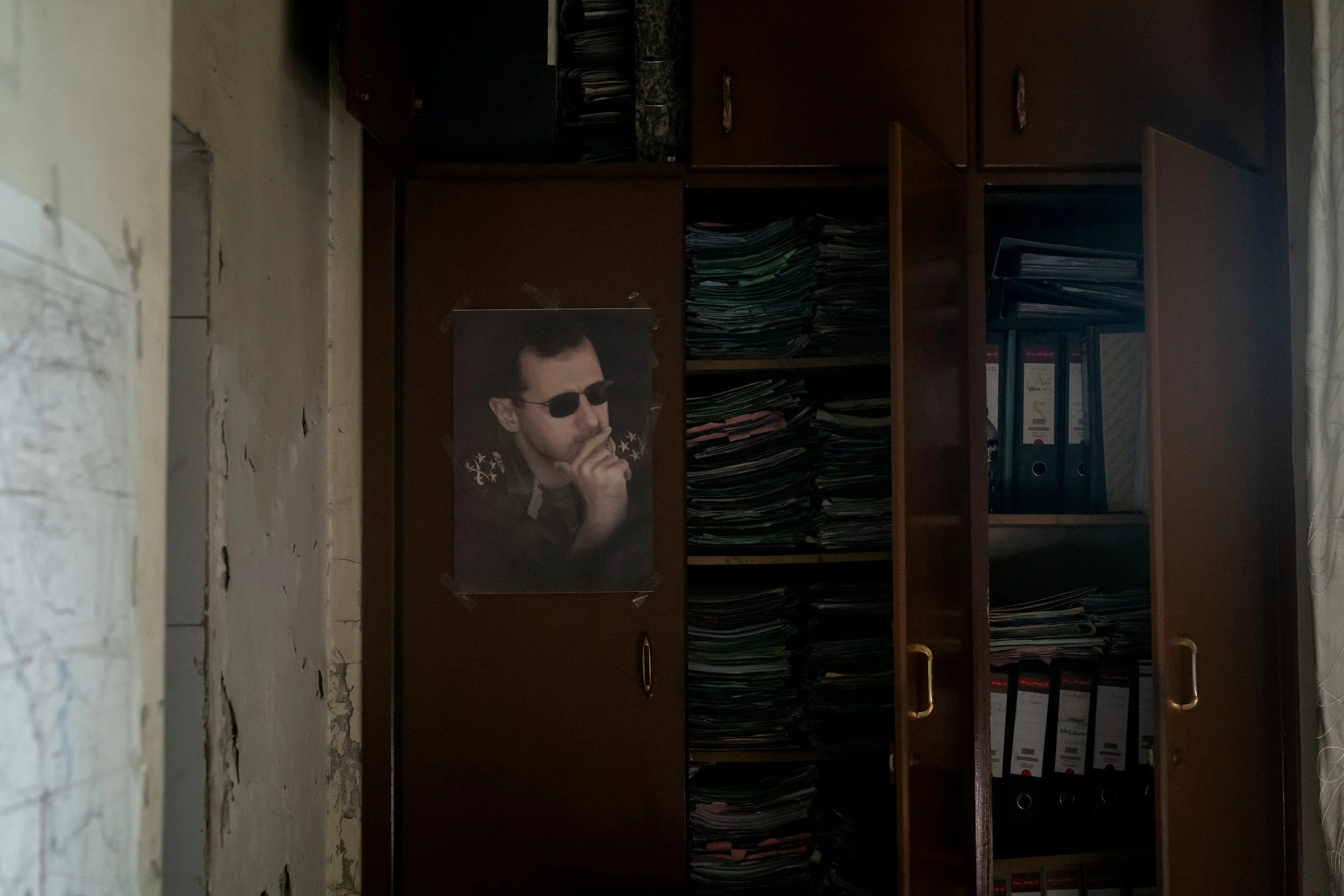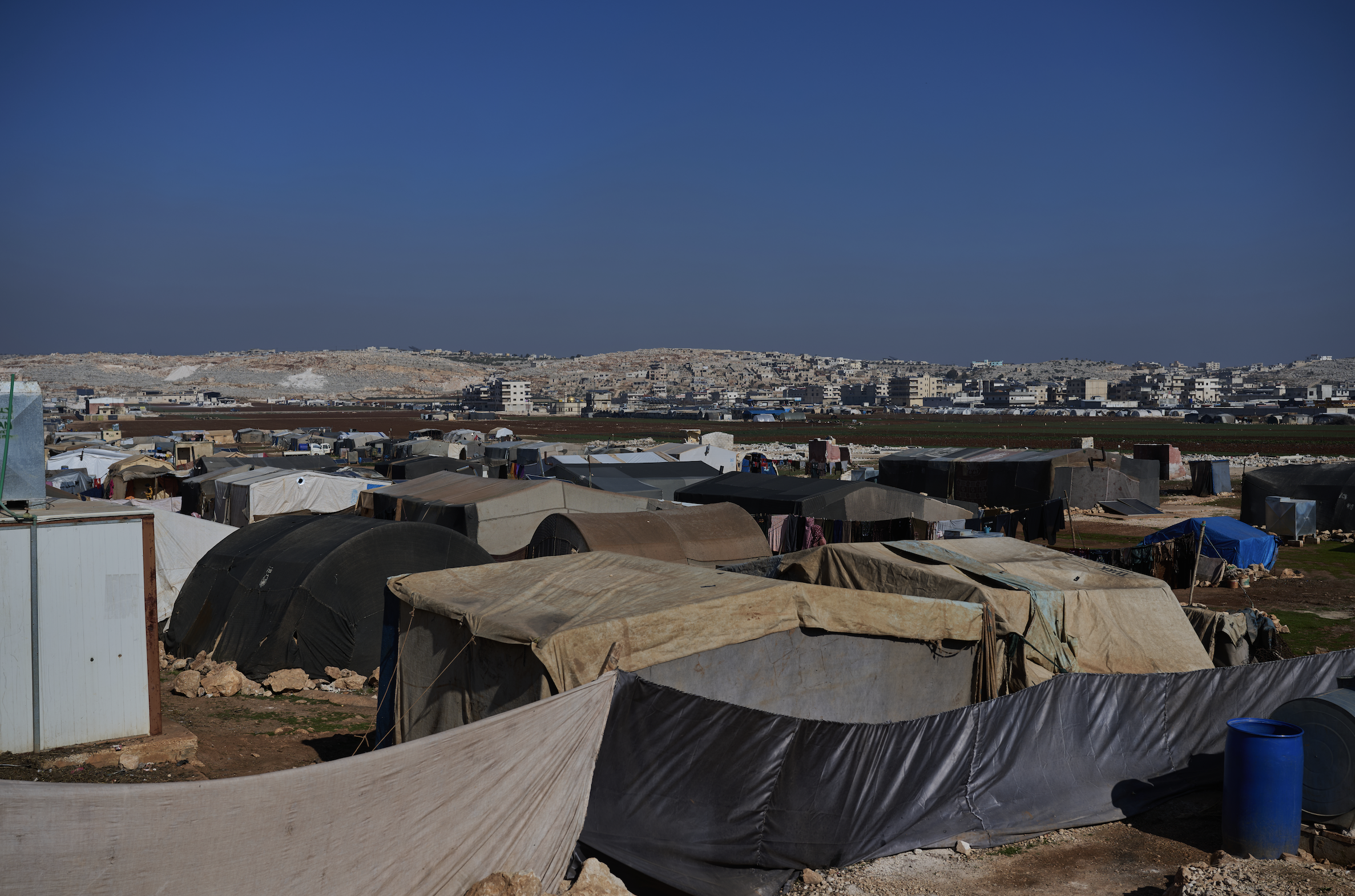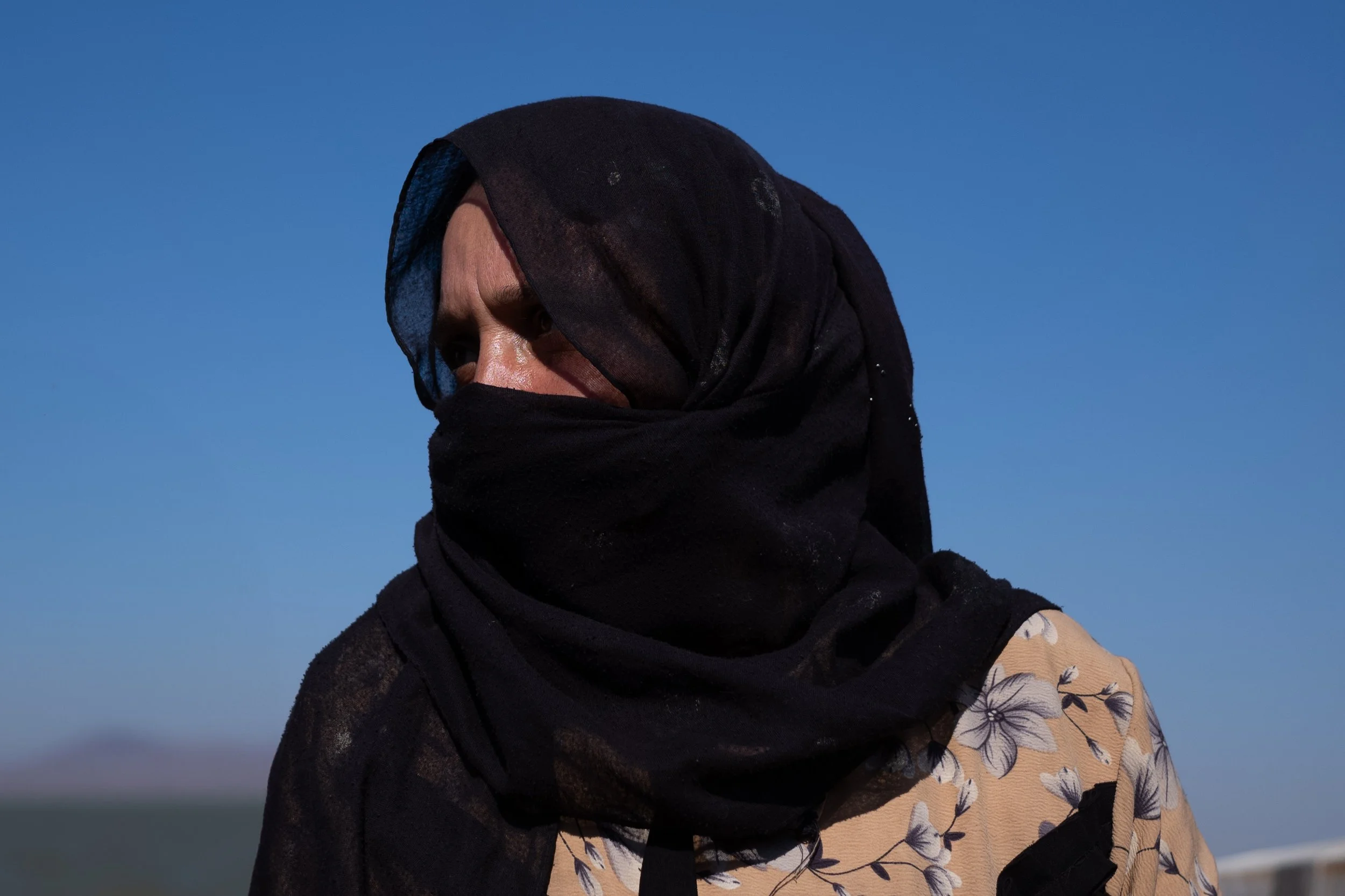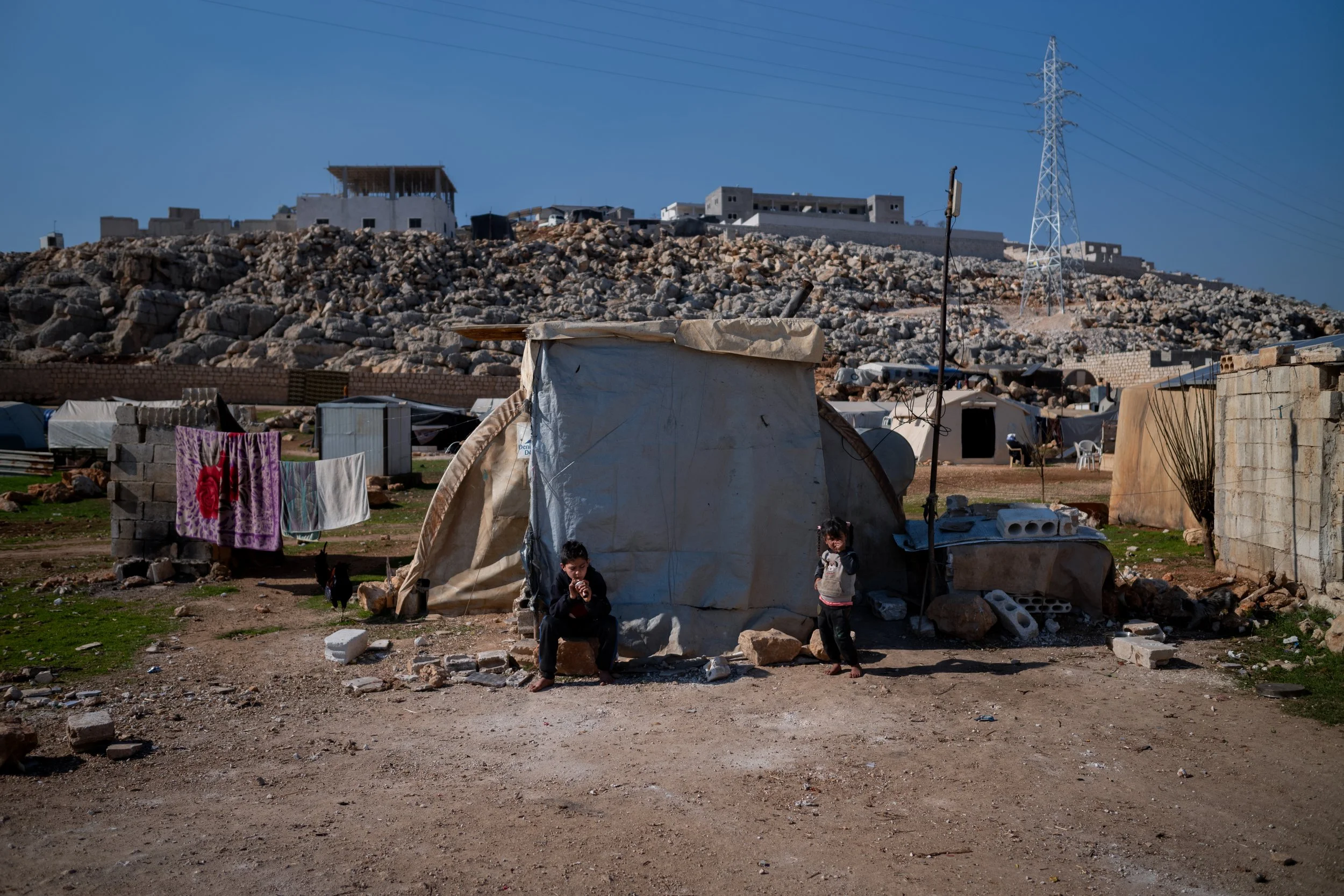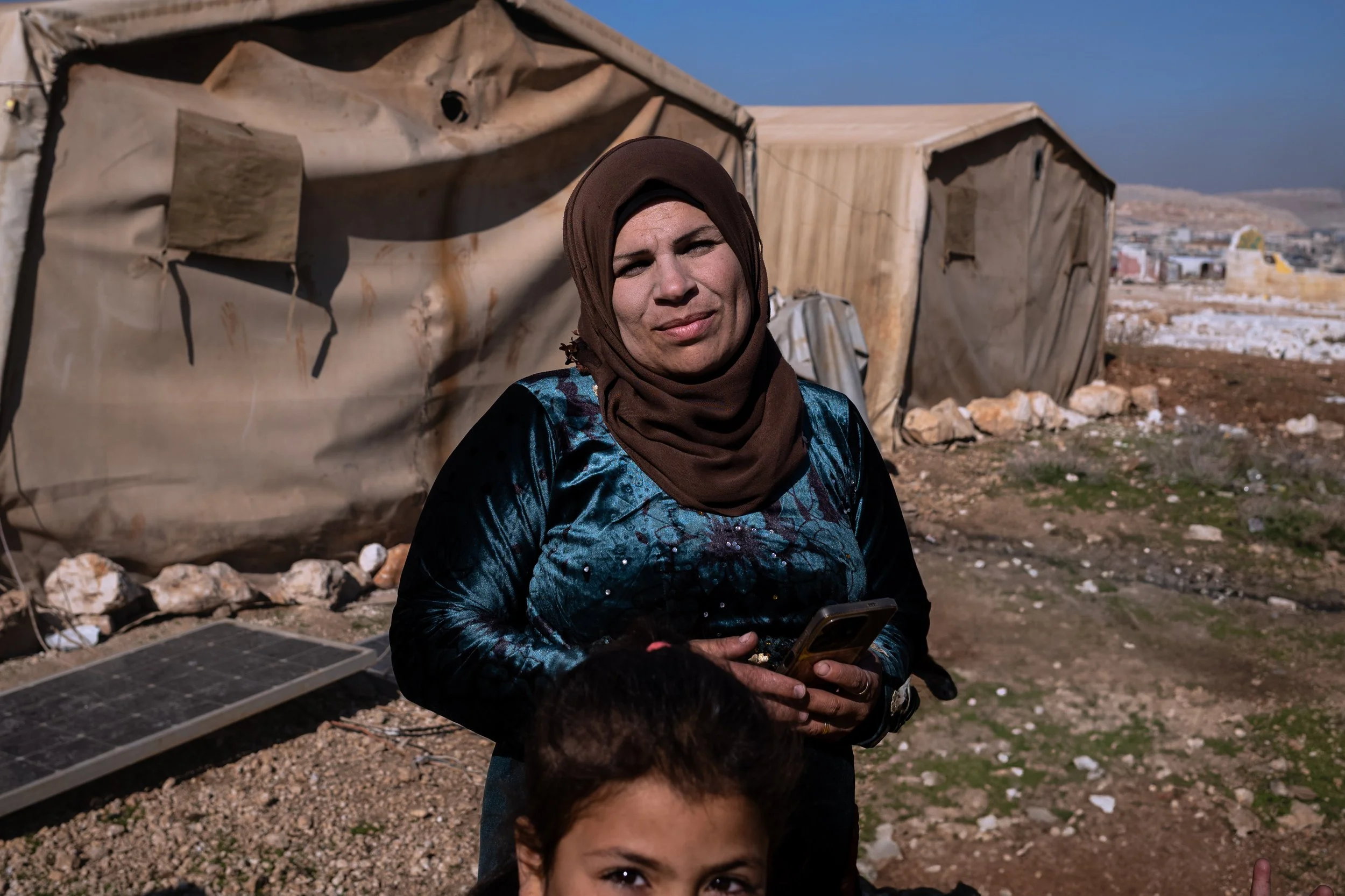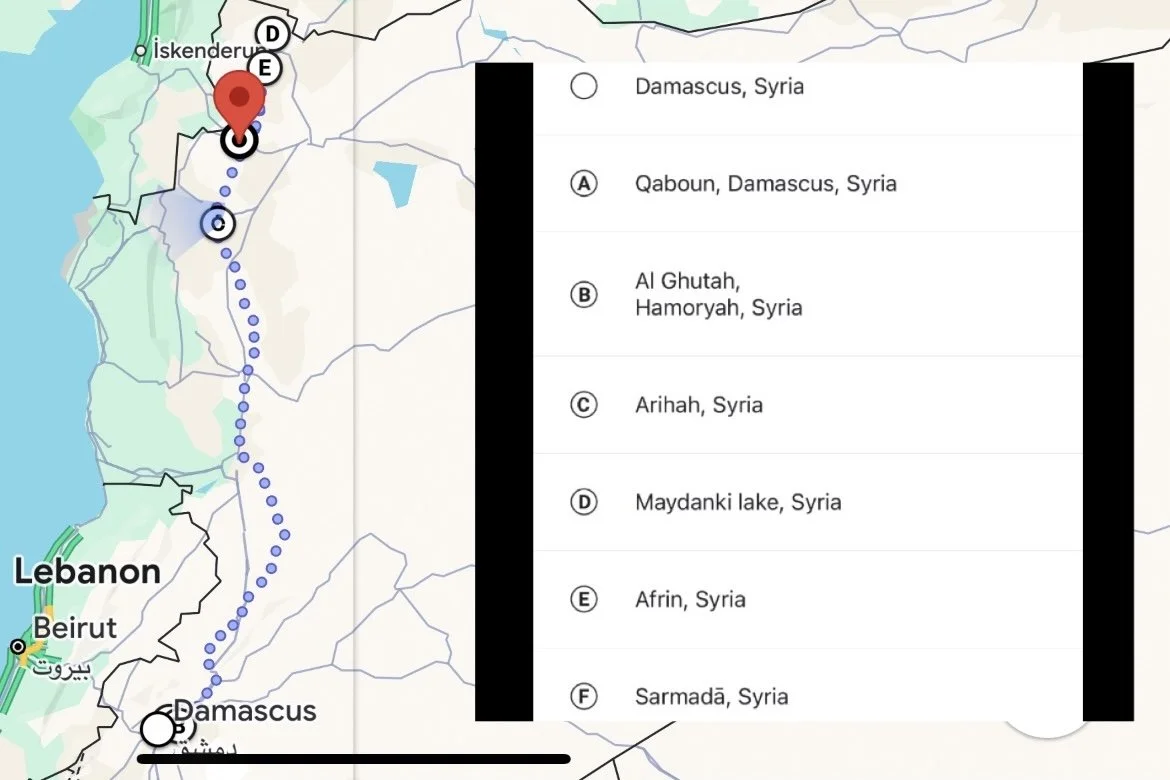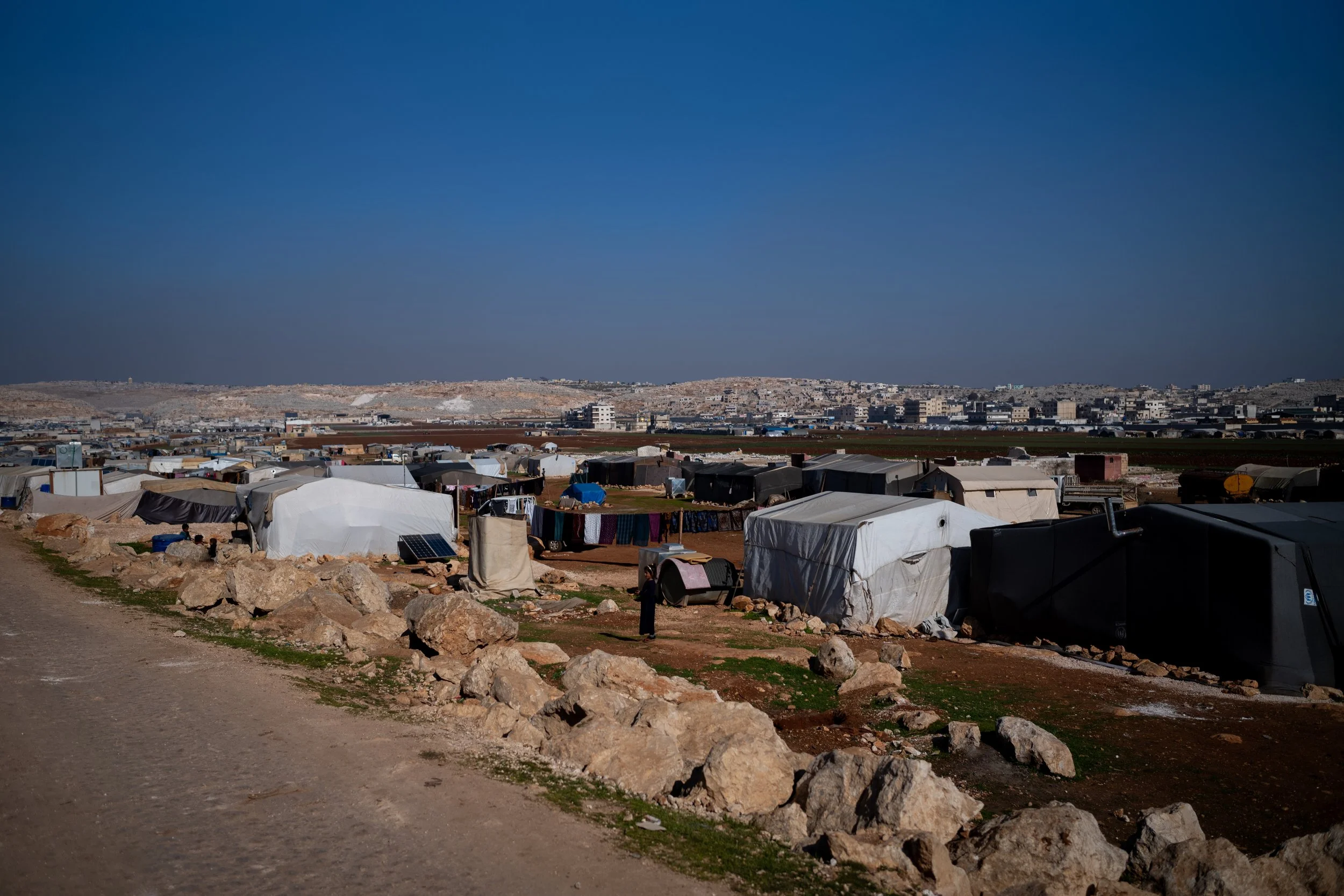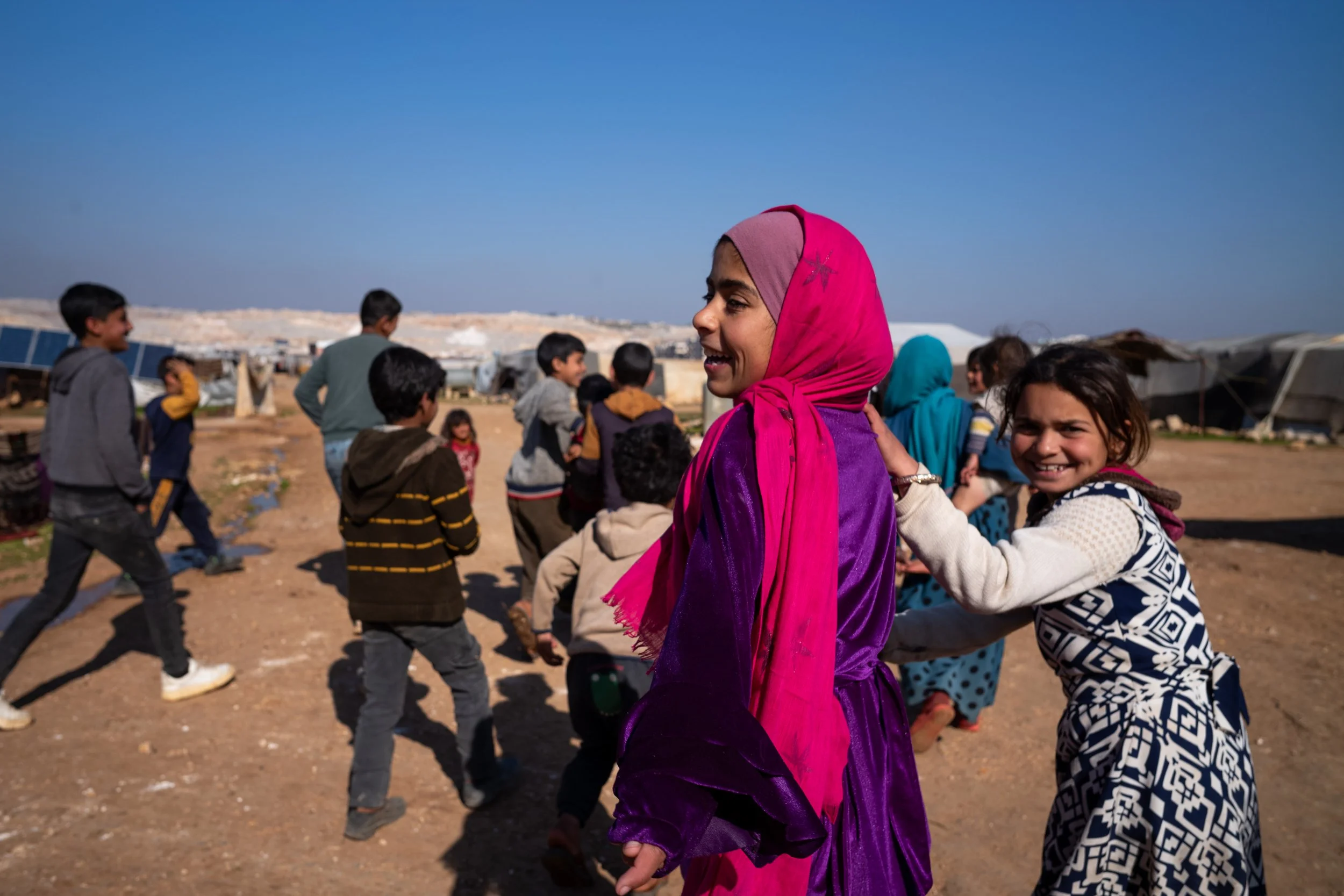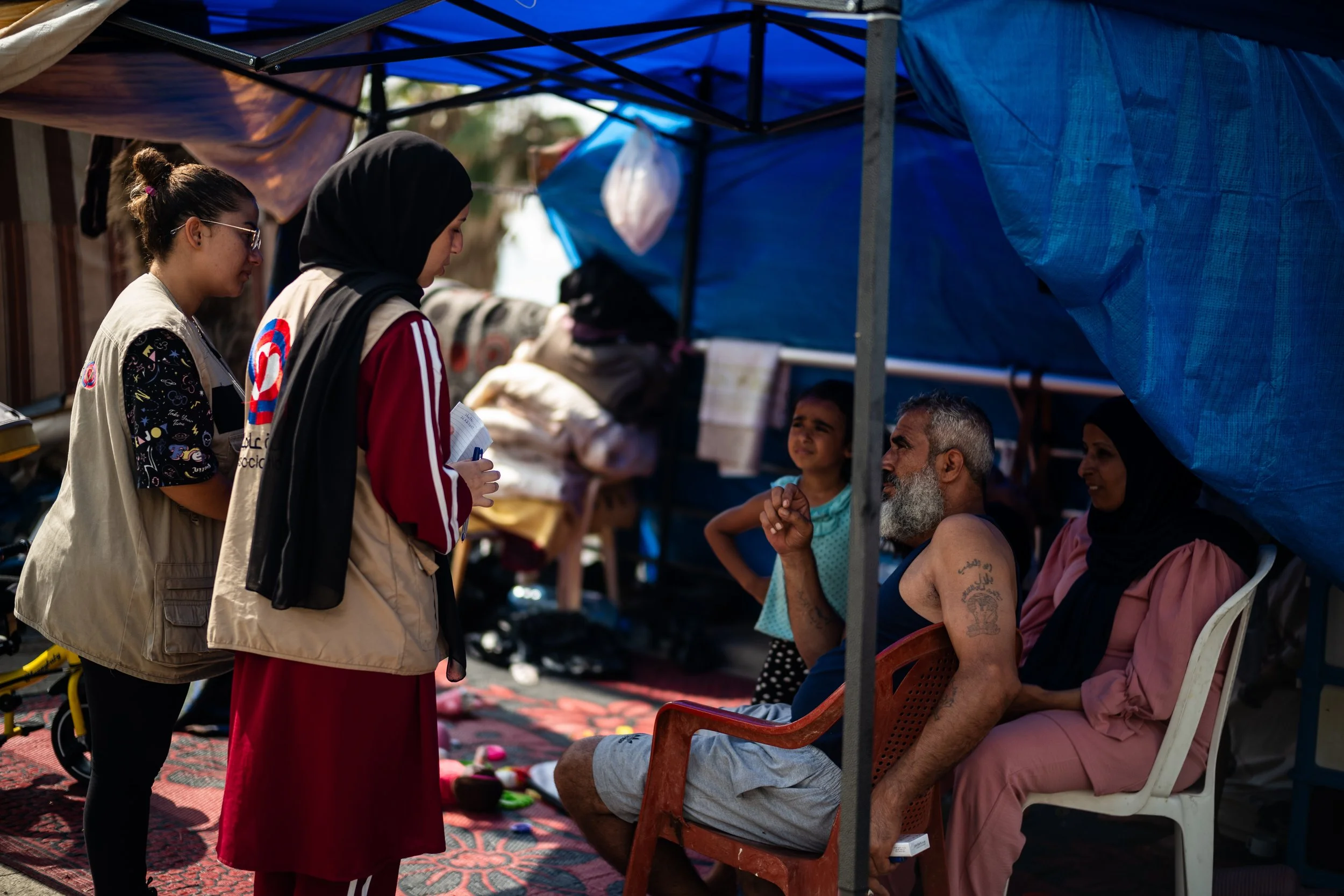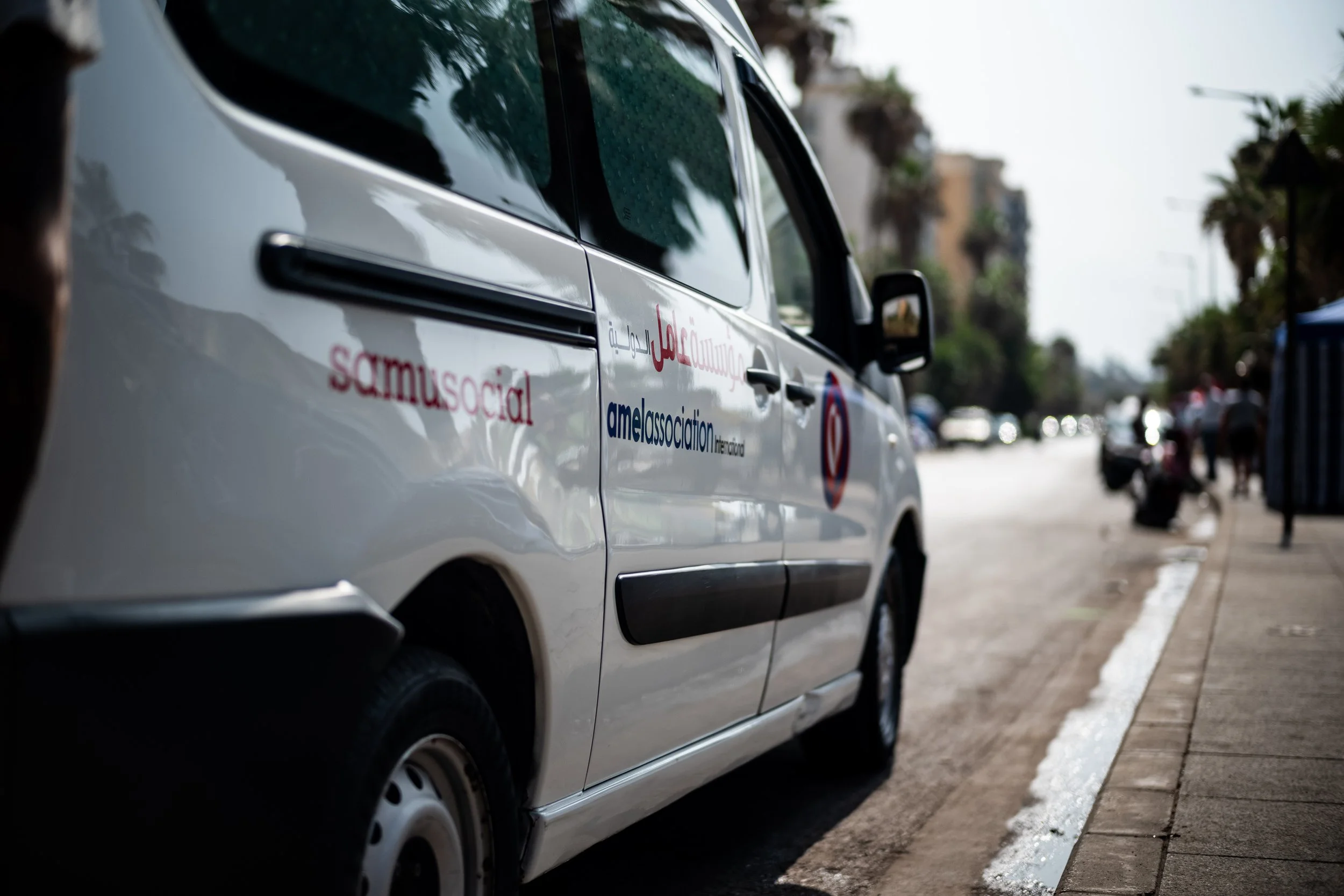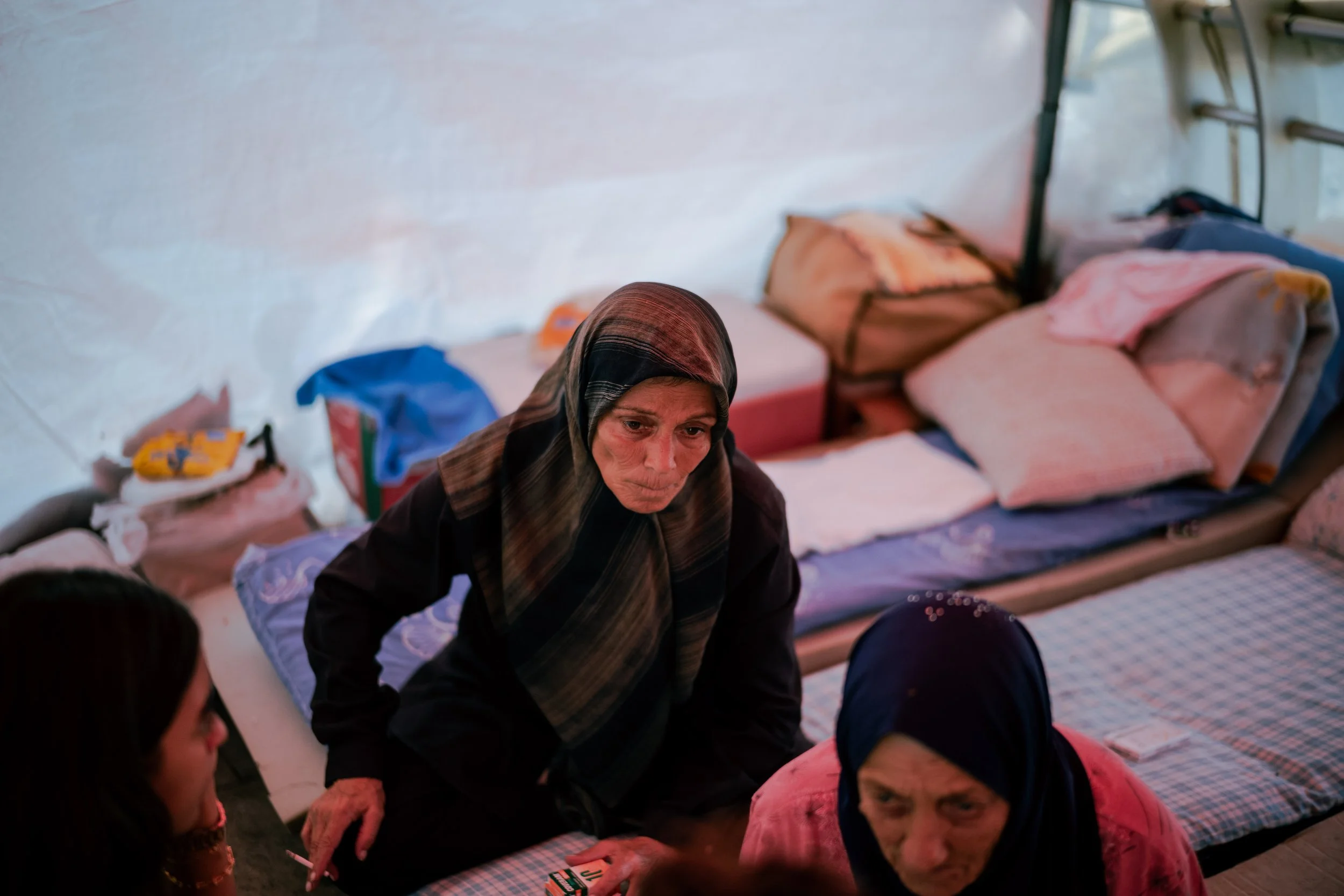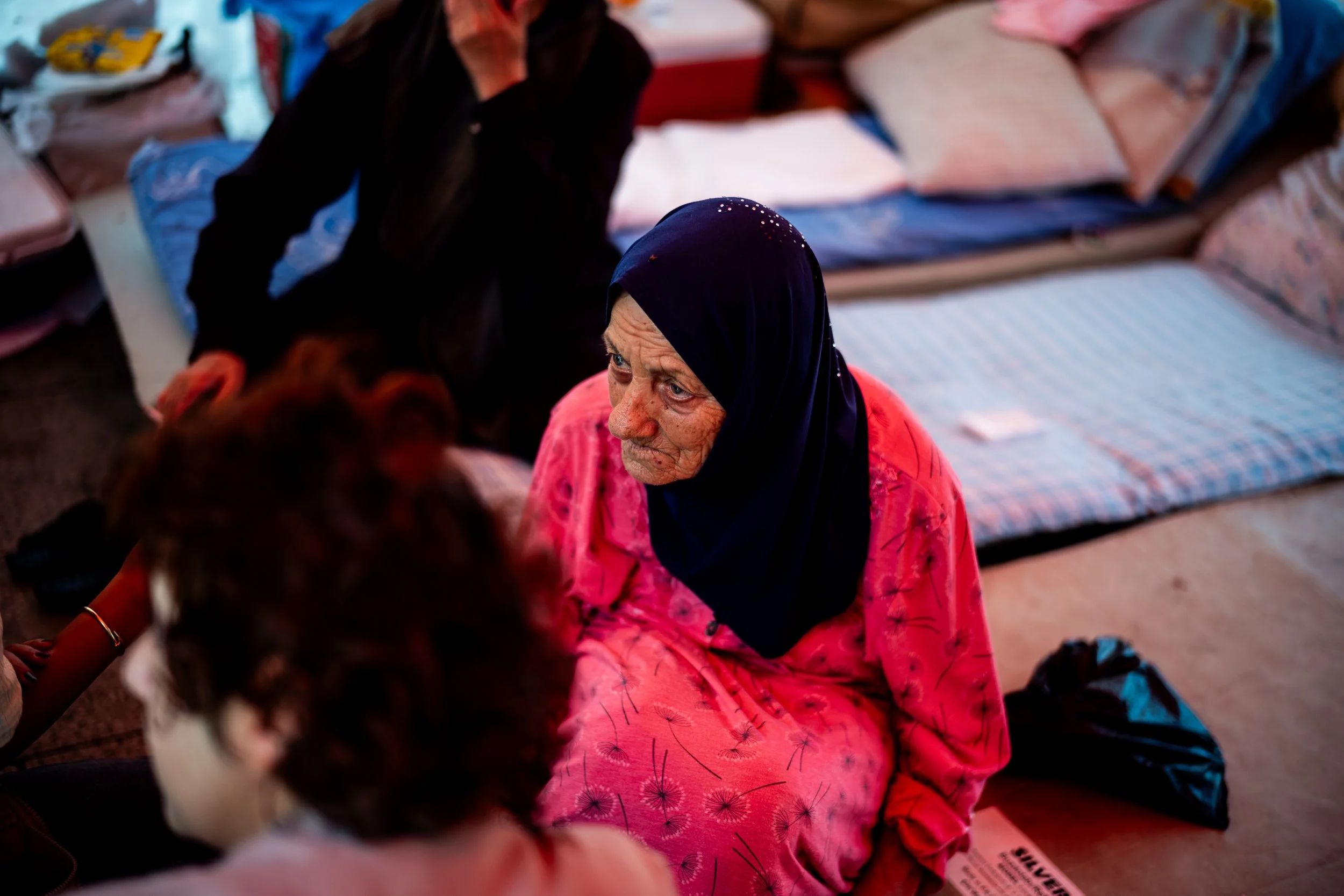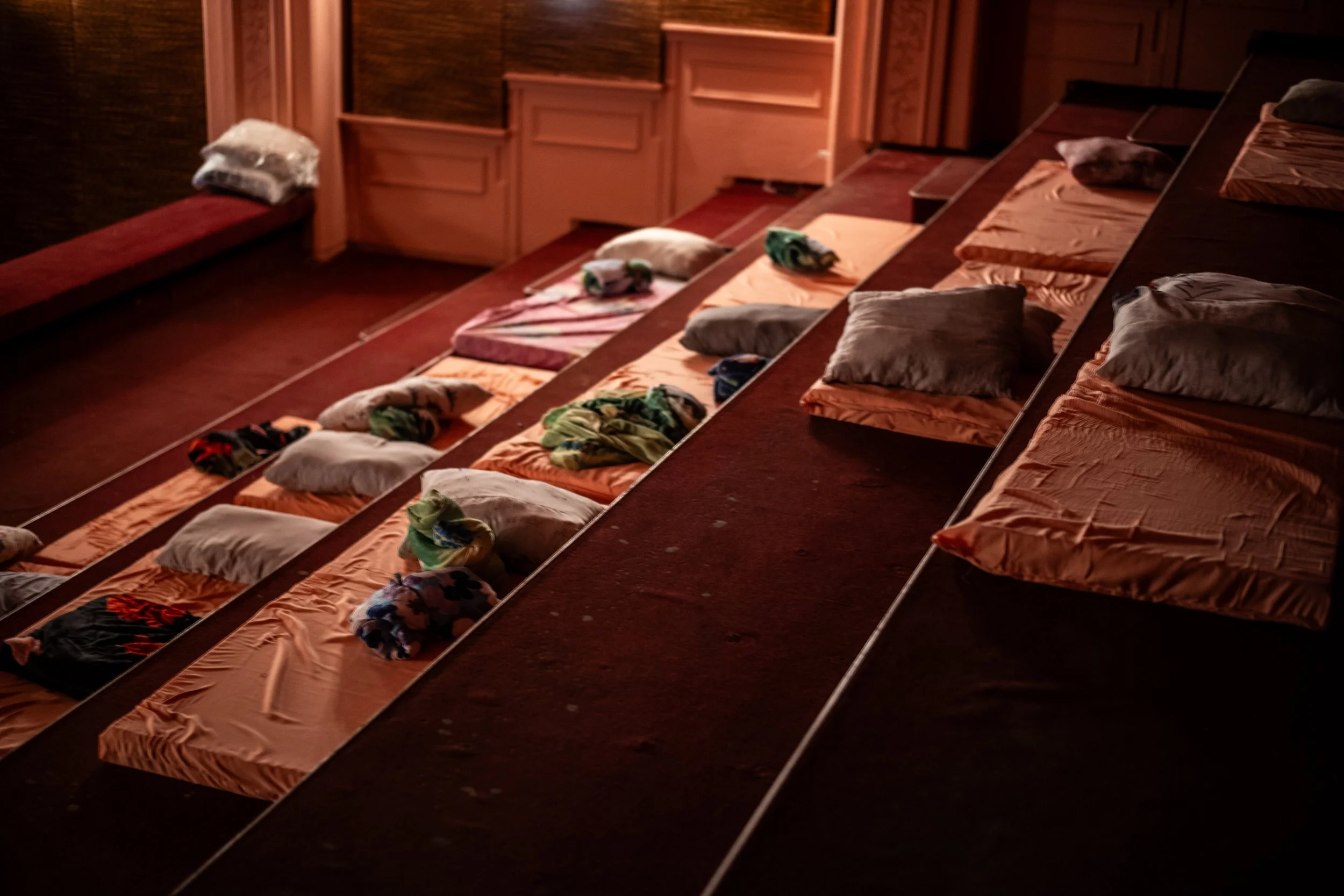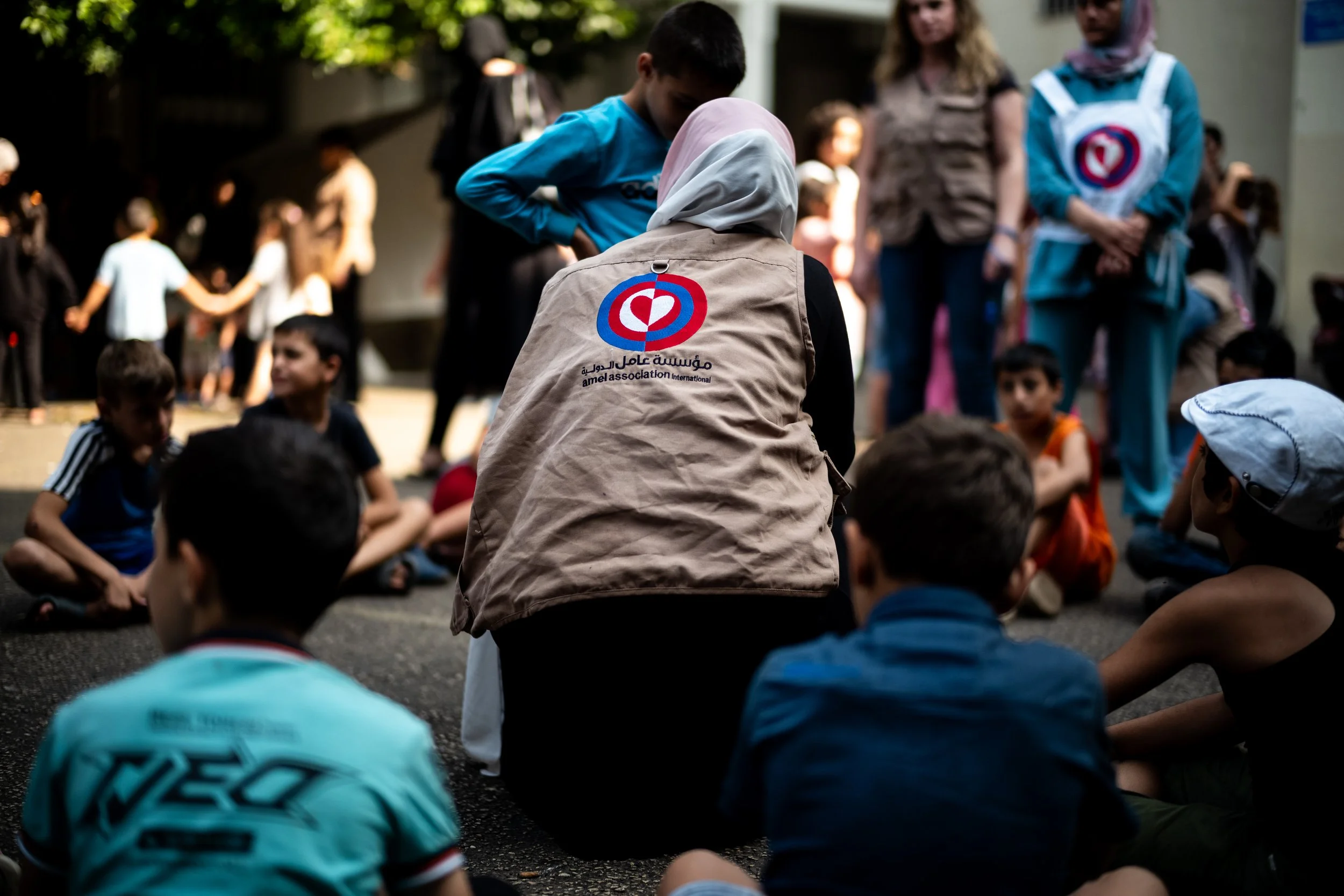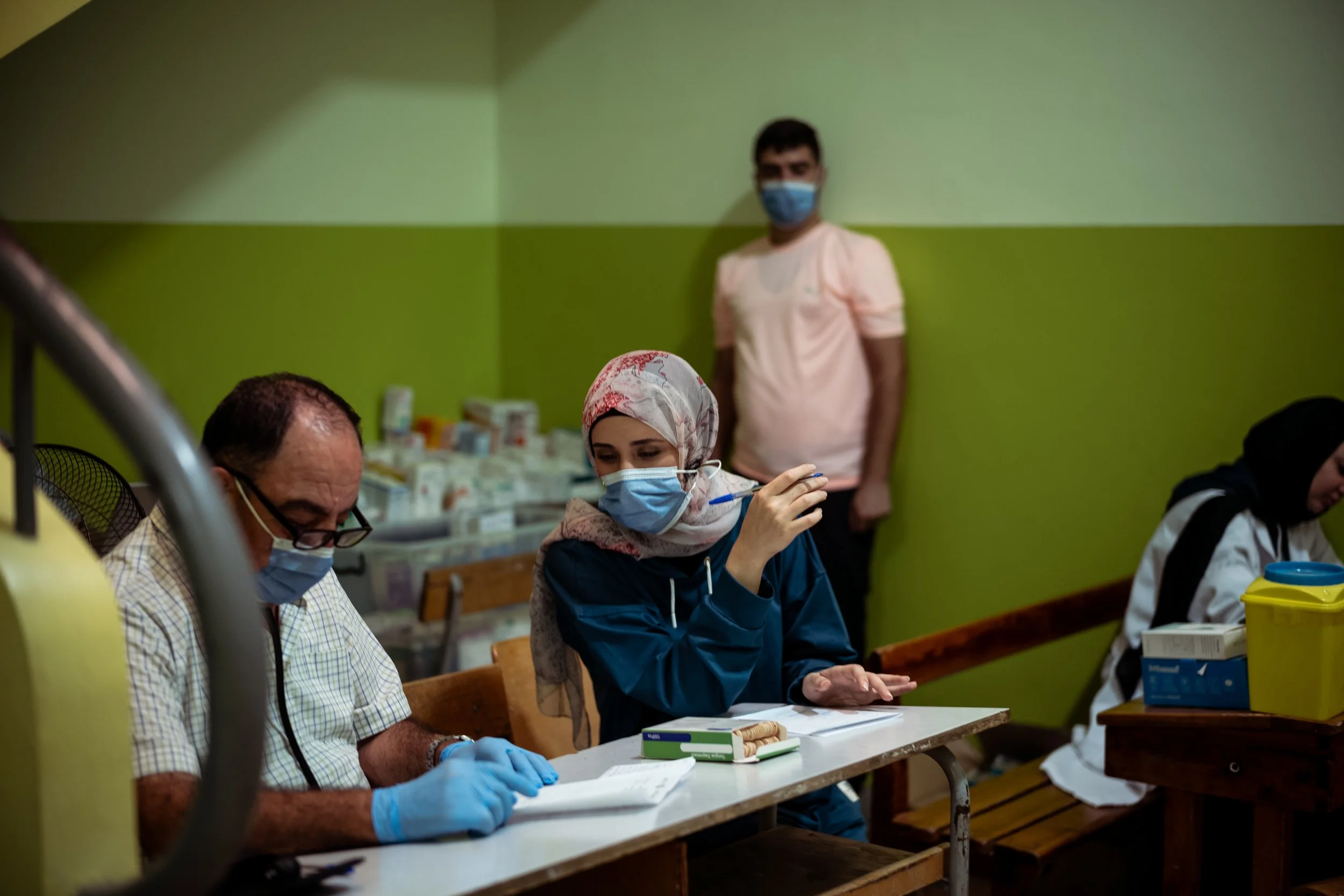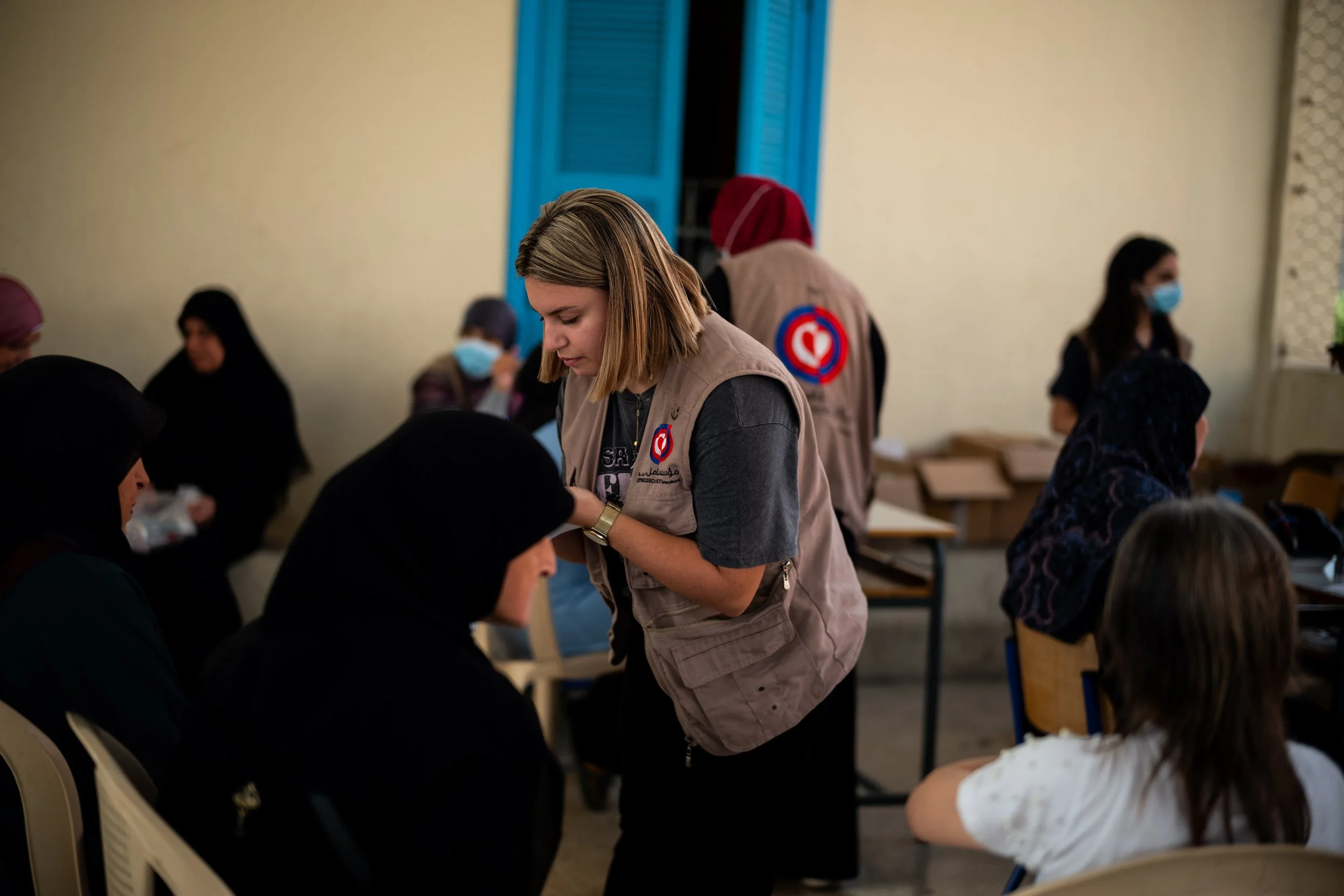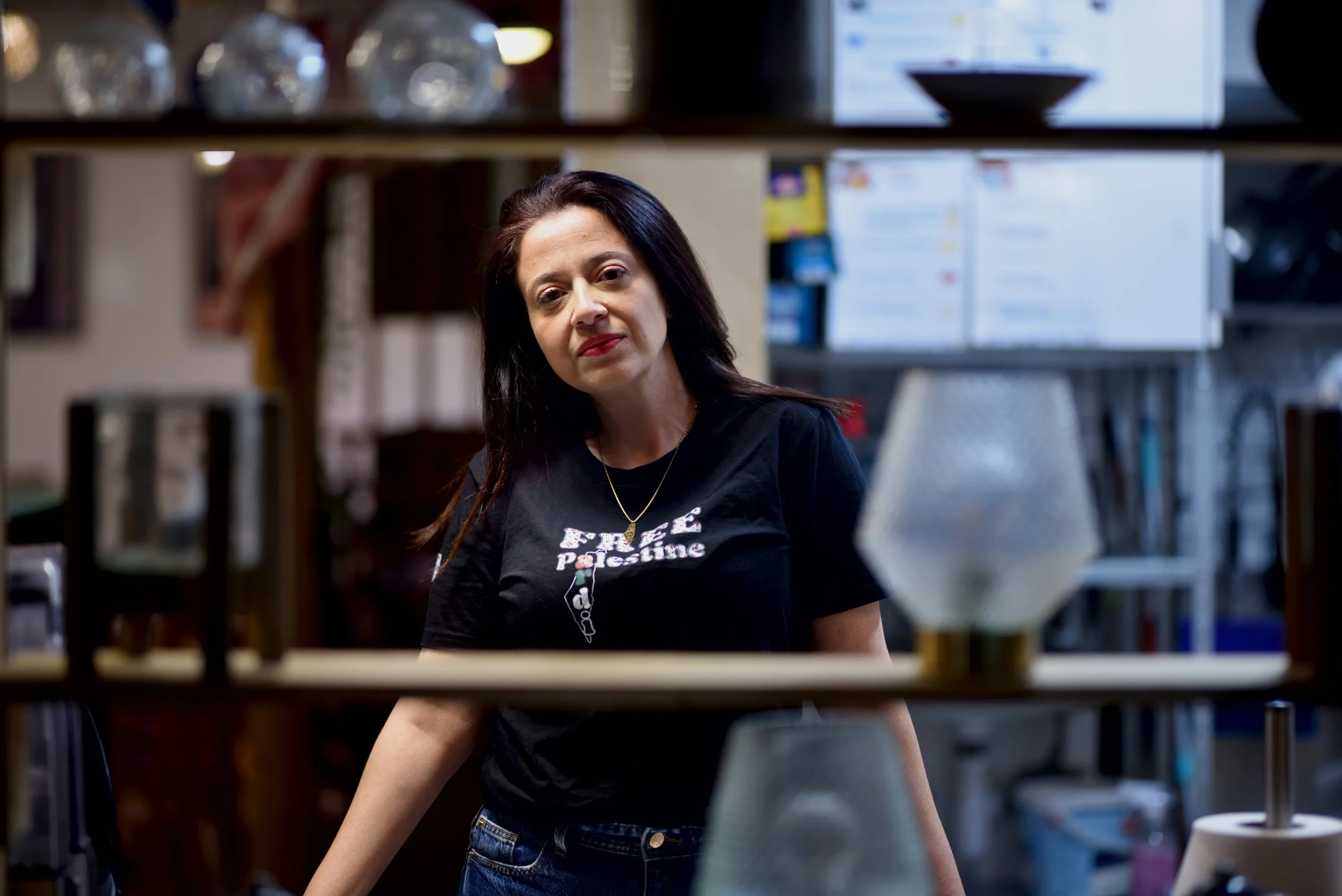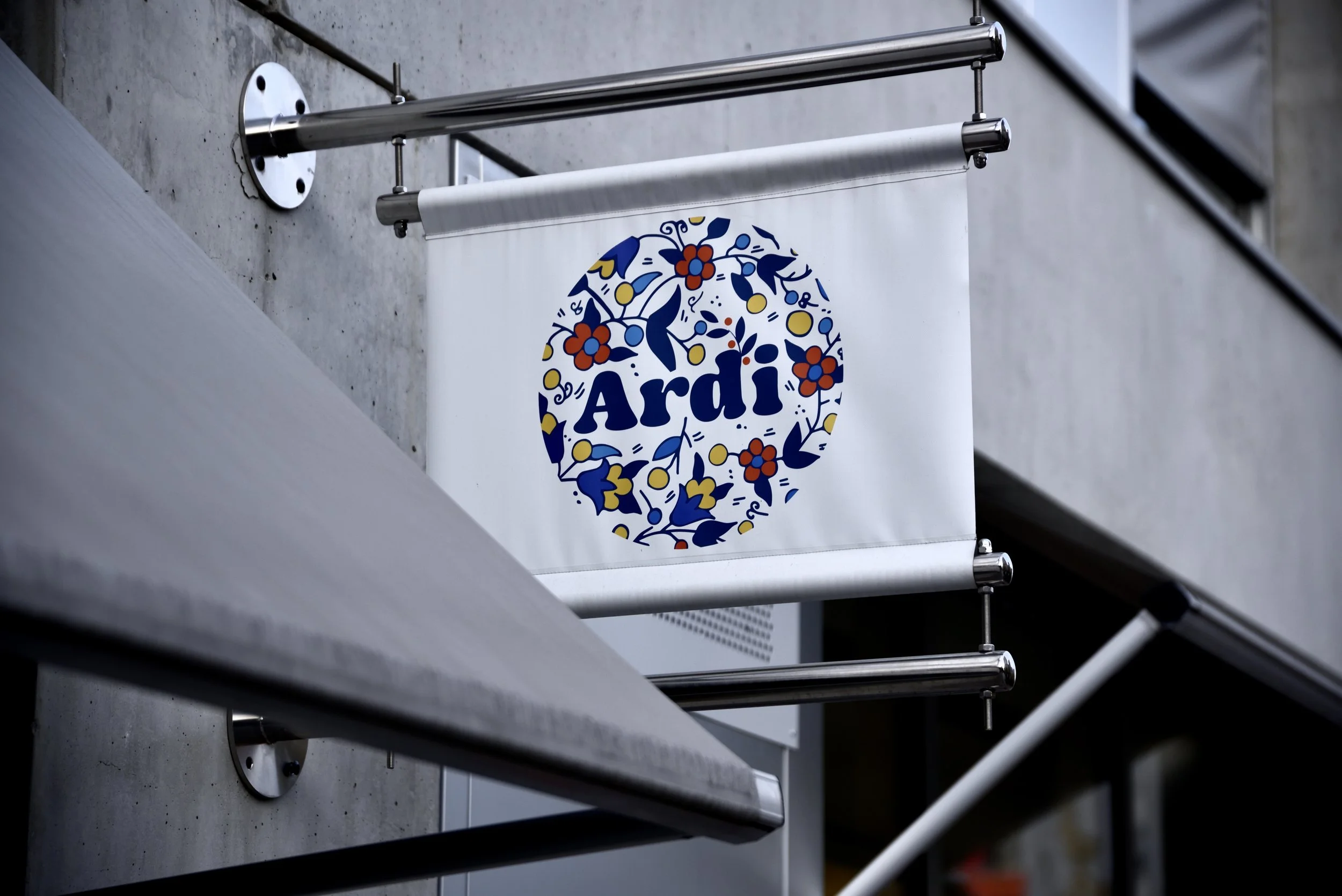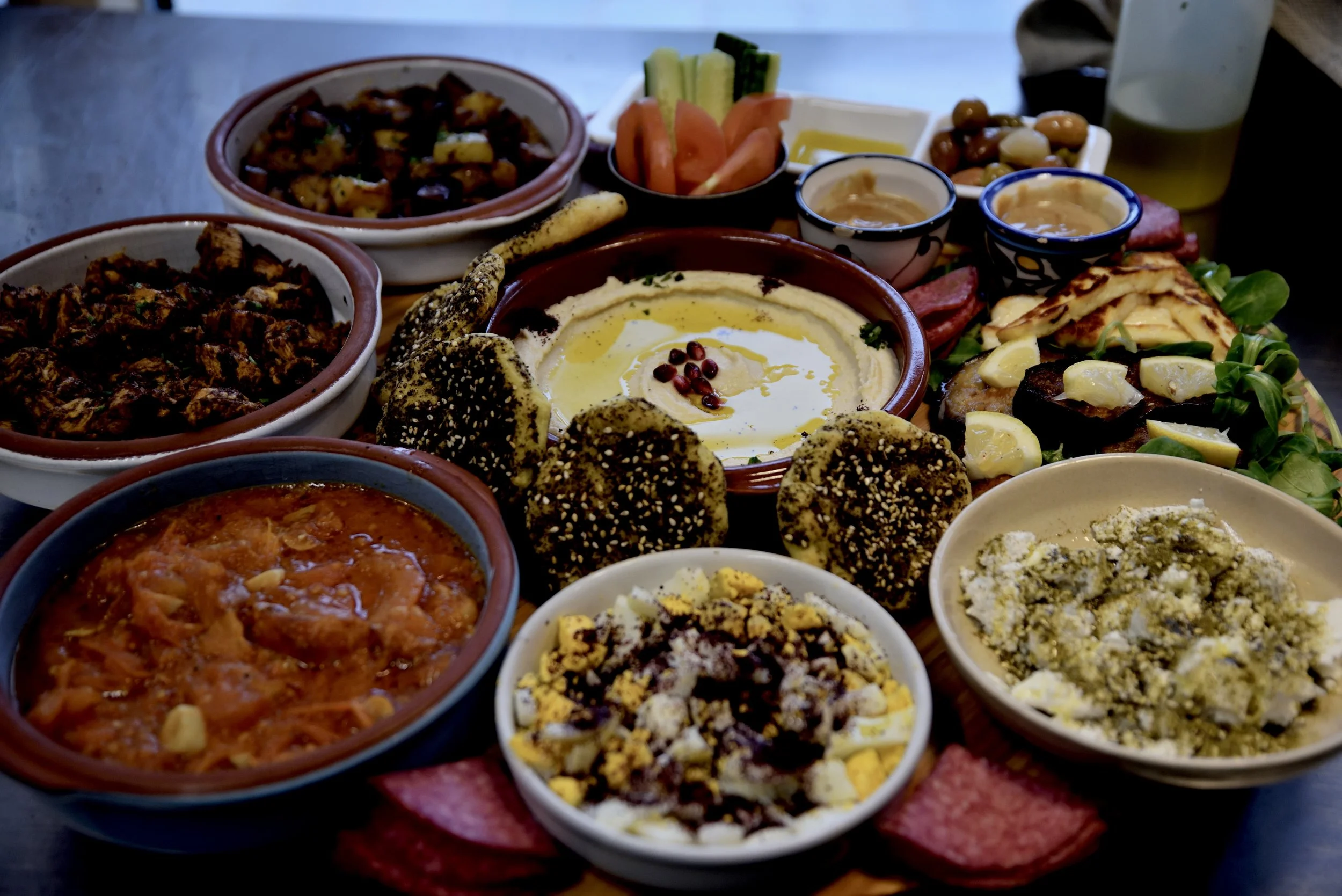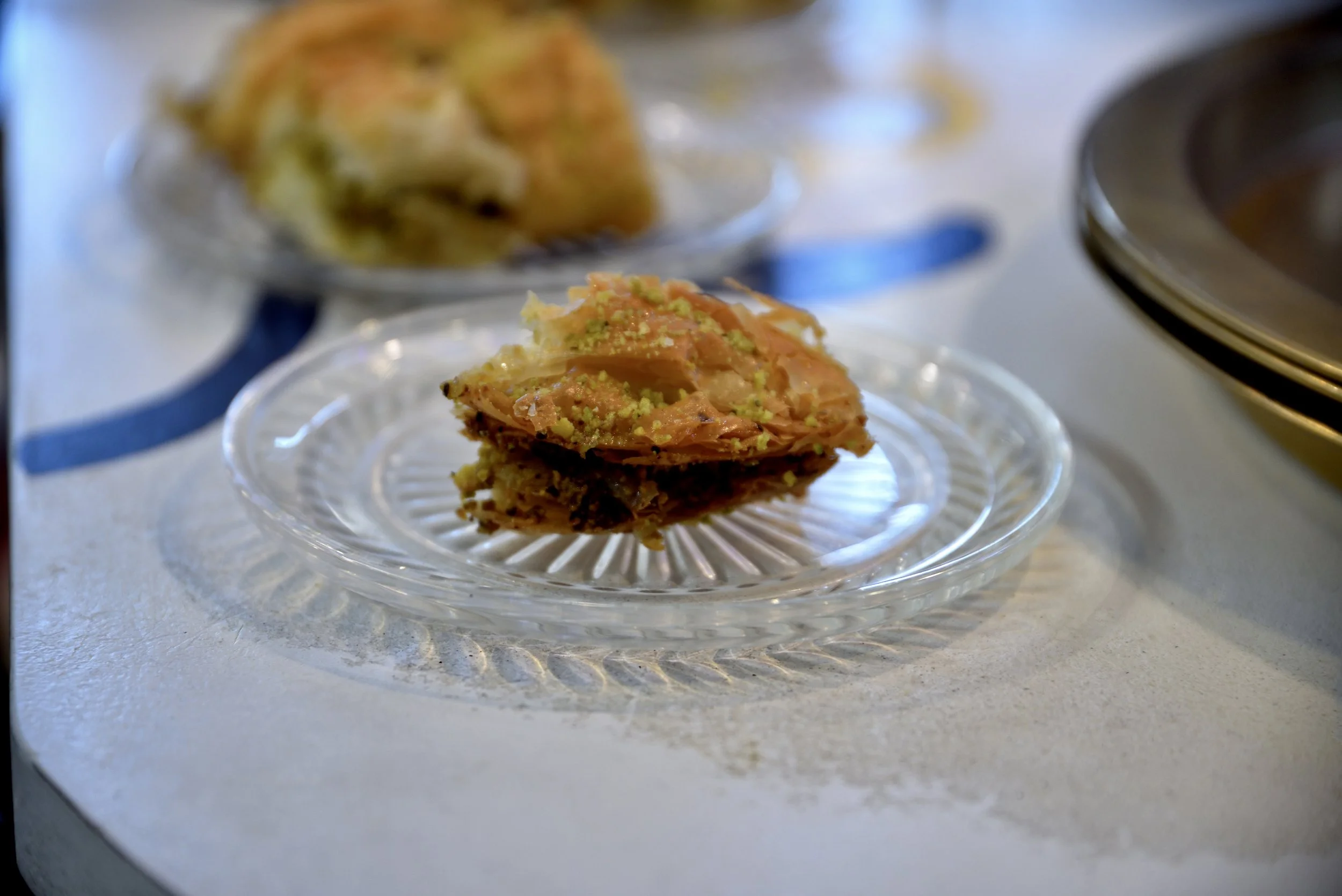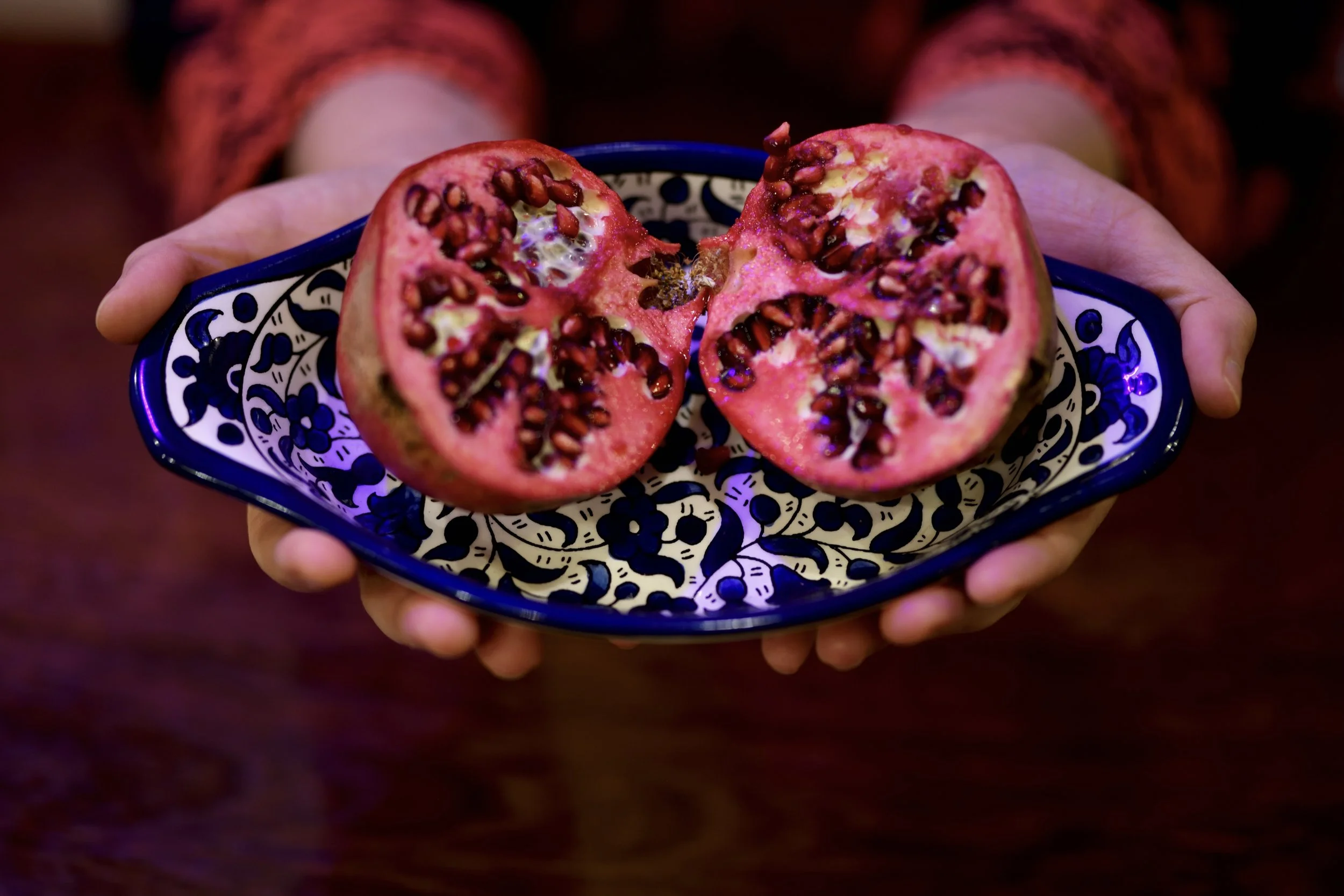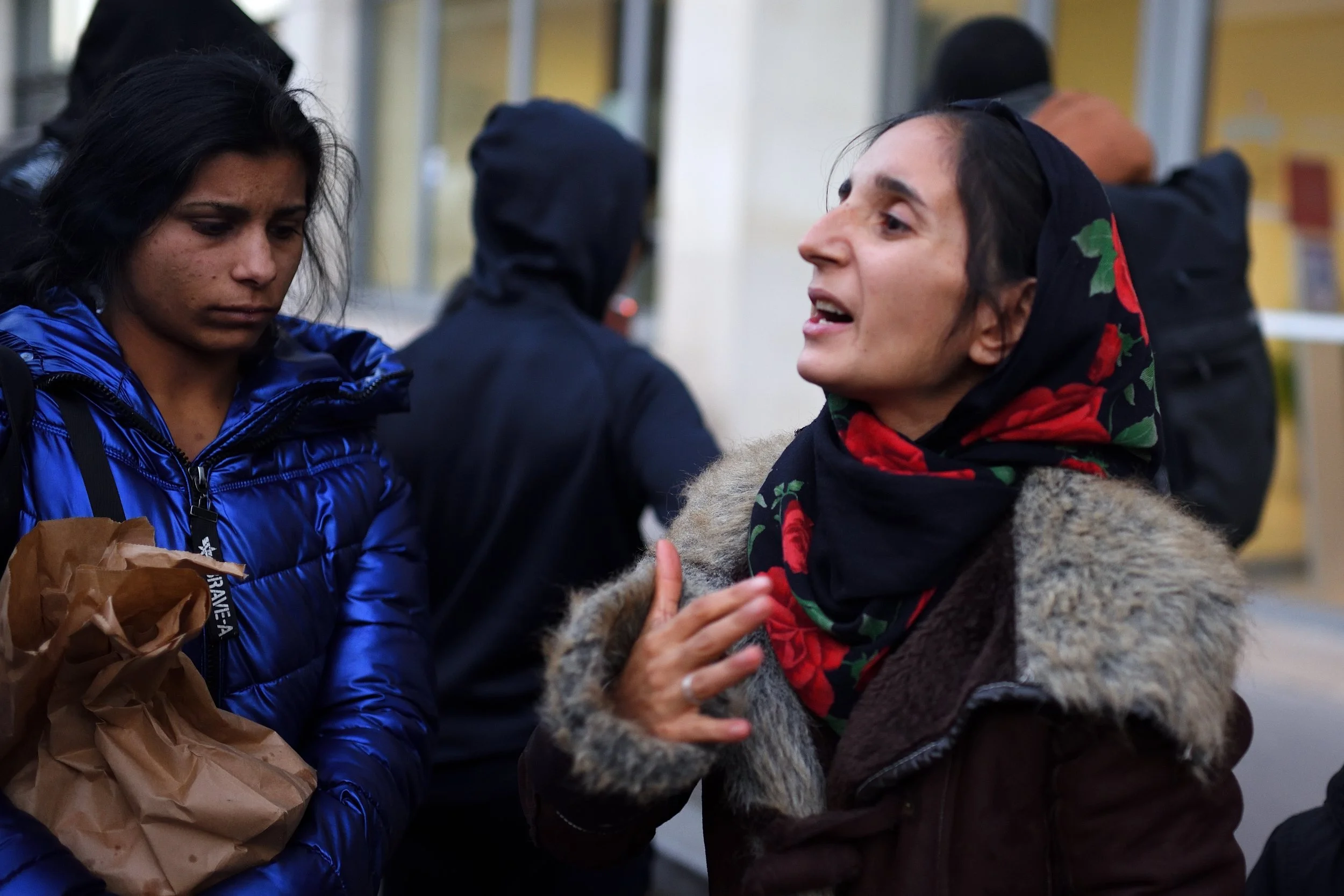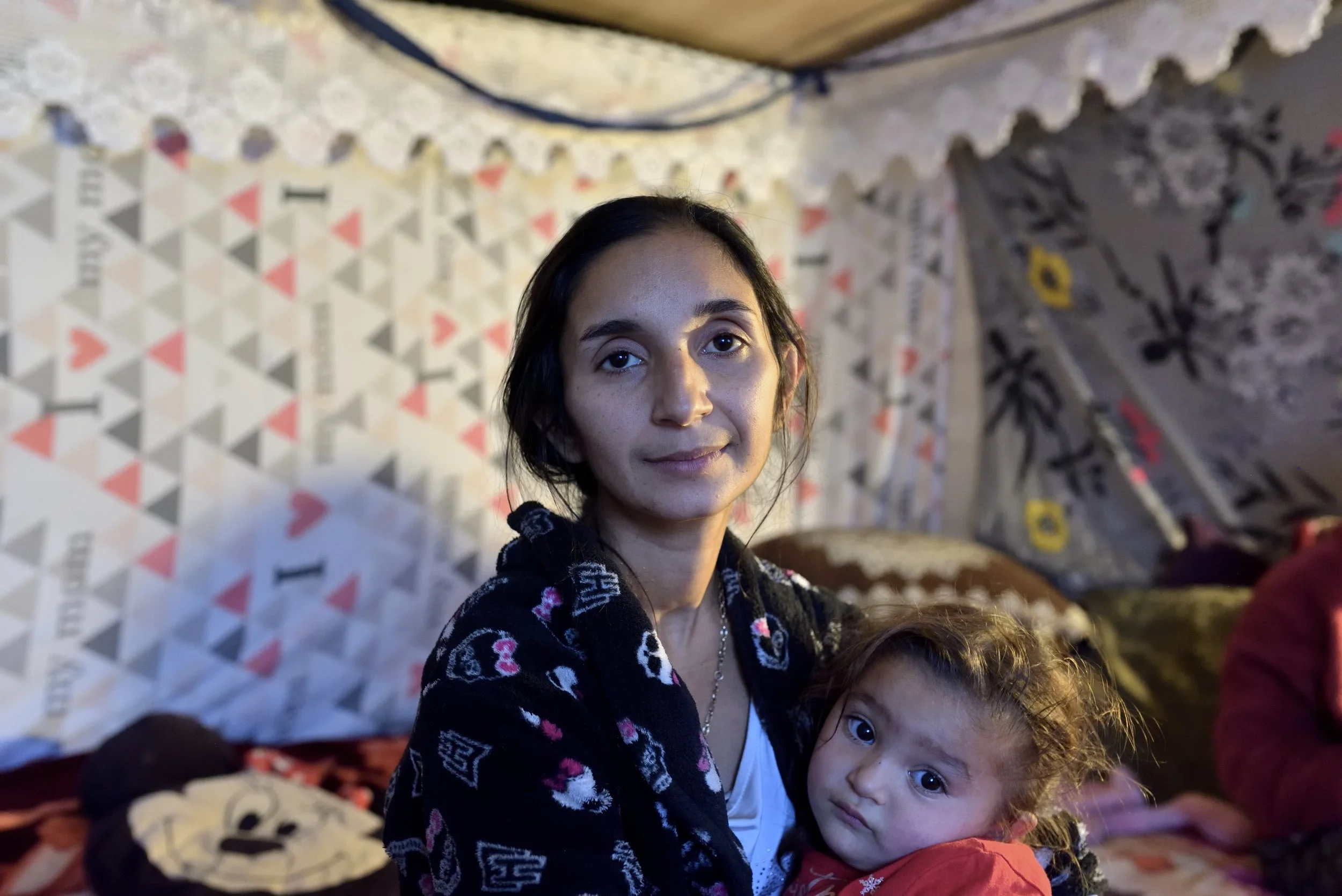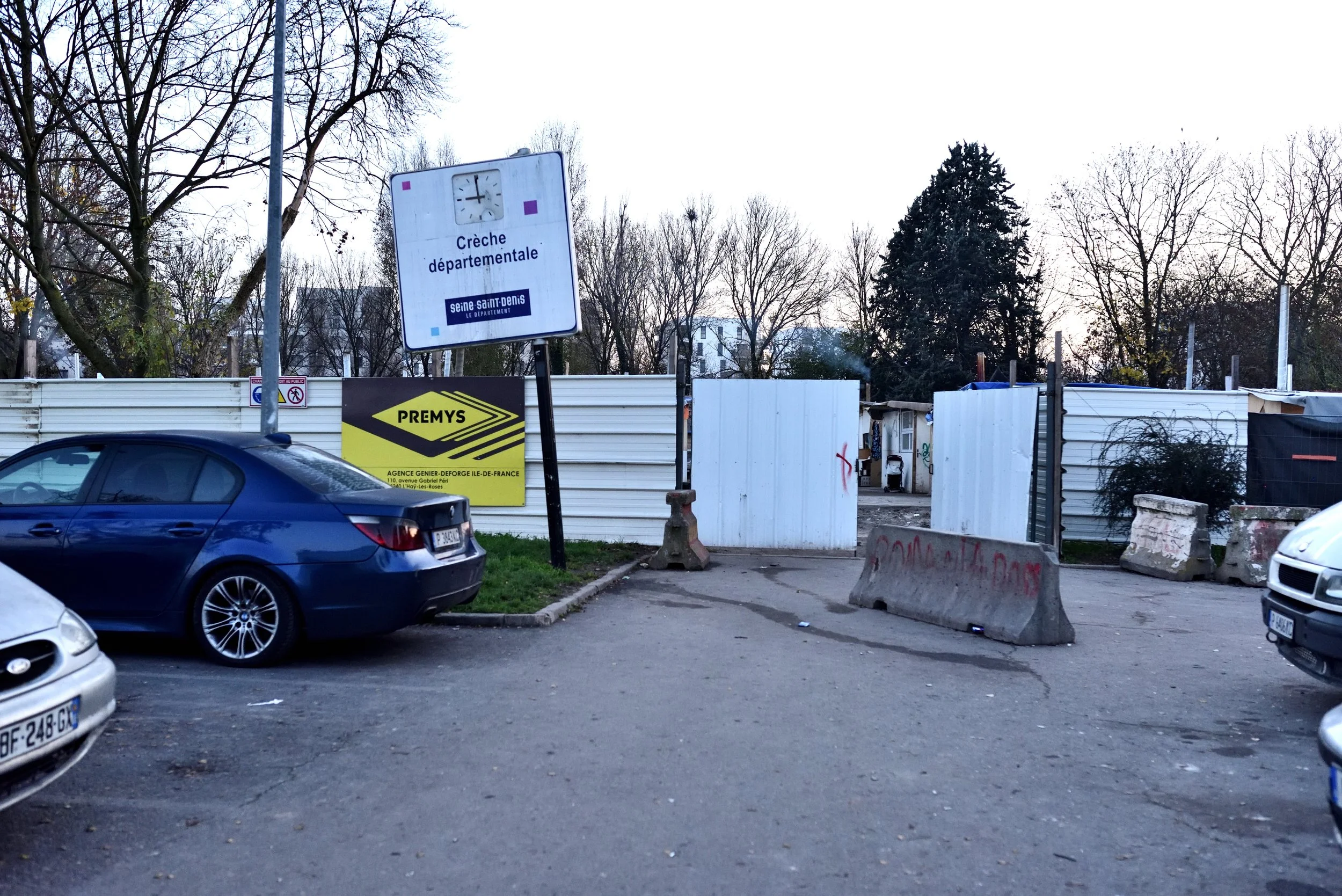ARTICLES
Selection of recent articles
FROM THE BRANCHES OF DEATH TO THE SLAUGHTERHOUSE OF SAYDNAYA, STATE TERRORISM OF THE AL-ASSAD CLAN, A ONE-WAY JOURNEY INTO THE JAILS OF THE ABOMINABLE.
Published on SpectoMedia on February 26th 2025.
Full article: https://spectomedia.org/de-palmyre-a-saydnaya-un-enfer-nomme-al-assad/
On December 8, 2024, after 12 days of rebel offensive, the Syria of the al-Assad dynasty is no more. Freed from a bloody dictatorship that lasted 54 years (including 24 under the regime of Bashar), the rebels of Hayat Tahrir al-Sham (HTS) opened the regime’s terrible jails. Publicly denied by Bashar al-Assad despite the numerous reports and testimonies of these miraculous survivors, the first images reveal the terrible truth that can no longer be hidden. It is estimated that nearly 30,000 mass executions were carried out in the military prison of Saydnaya between 2011 and 2018 alone. Comparing Saydnaya, the macabre "human slaughterhouse", and the entire repressive system of the political apparatus from the regime to hell is almost an understatement. From revolt to horror, to the country where walls had ears and your own entourage could make you guilty in the eyes of the regime, there was only one step.
The famous journalist Paul M. Marchand wrote in his biography "I simply do not have the right words to express and tell what I would have liked to convey. The Human, in inventing language and its cohorts of vocabulary, could not think of the Inhuman, the Ineffable, the Unsuspected. How to formulate something you don’t imagine possible?" (Sympathy for the Devil). What could he have written in the face of the terror of the repressive mechanism of the al-Assad regime?
As soon as Hafez Al-Assad took power in 1970 after his military putsch and for more than three decades, the country closed in on itself: all forms of opposition and expression are muzzled, demonstrations banned and a state of emergency decreed. In February 1982, the regime watched in blood an insurrection of the Muslim Brotherhood, its bête noire, in the city of Hama, in the center of the country. Thus, to eradicate all dissidence and permanently install his clan in power, President Hafez al-Assad is implementing a torturing despotism with an organized and methodical oppressive system where the culture of cruelty is generalized and trivialized.
Hundreds of millions of Syrians have suffered the barbarity of the Al-Assad clan. Of all ages, all social classes, all faiths, all regions. From the moment he took power, Hafez al-Assad transformed Syrian society into a frightful vice that swarms of informants tightened around civilians through denunciations, arbitrary detentions, kidnappings, "exceptional" courts and a multitude of networks of hellish prisons where violence and torture of flesh and spirit were the political instrument of extermination and dehumanization of the dictator.
The massacre had become the foundation of Syria’s governance. Compared to the Nazi system, and for good reason, the architect who built its dark foundations was none other than Aloïs Brunner, a former Nazi who found refuge in Syria to provide his skills. Engineer of the Final Solution and director of the Drancy camp, he scalded the Syrian system of information and torture by becoming the advisor of Hafez al-Assad.
From the Mukhâbarat (regime intelligence services) to the Chabbiha (militia officiating in the neighborhoods), the "little hands" and the checkpoints, every act and gesture is spied on. The slightest breath can be perceived as a threat to the Baathist regime. The slightest word, even if it does not come from your mouth but from that of a distant cousin whom you have not seen for years or from a teacher whose class you are taking, is sufficient proof of your opposition to the Al-Assad clan. Based on denunciation, on calumnious accusations, for a word too high, a not low enough look, a phone call, or on the mention of your name during an 'interrogation' under torture, there also, you can disappear and/or end up in one of the 27 'death houses' without leaving any traces.
(…)
In Hafez al-Assad’s Syria, more than 17,000 detainees disappeared between the end of the 1970s and the beginning of the 1980s. In 2015, the human rights organisation Syrian Network for Human Rights (SNHR) estimated that 215,000 people had been detained since the beginning of the revolution, half of them without their families having any information about them. Desperate anticipation also served as a prison where the ghosts of members evaporated in the meanders of a morbid administration, corruption, ransoms and in what one could not even consider the best case scenario, the release from death-alive, forever broken and bearing the scars of this unspeakable war of the regime against its people.
A penitentiary system where all the worst abuses are methodically or even pathologically archived as proved by the Caesar file, code name given to a former military police photographer who exfiltered two years of photographs (2011-2013) is 53275 abominable pictures including 28707 representing 6786 detainees died under torture, from hunger or untreated diseases. The country’s prisons have become centers of torture and execution: places intended less to obtain information and punish crimes than to break any resistance and terrorize the population by making opponents disappear after having subjected them to degrading treatments of extreme cruelty, of which their relatives were in turn threatened. Places where the human was reduced, a number of a box, then a number of corpses and finally that of a register in turn enclosed in maze of already engorged shelves.
(…)
Turning the page on a violent past involves setting up various mechanisms related to 'transitional' justice, which aims at a transition to a state of civil peace involving the conviction of those responsible, material and symbolic reparations, or even the establishment of facts within the framework of truth and reconciliation commissions.
The Caesar case, the Koblenz trial, the numerous NGO reports and the testimonies of victims as well as their relatives finally resonated with the fall of the regime. As if it had been necessary for the world, in full knowledge of the facts, to see with its own eyes what 54 years of torturing dictatorship looked like. On June 29, 2023, the UN General Assembly adopted a resolution establishing an independent international institution on missing persons in Syria. This institution aimed to help the families of victims, including victims of enforced disappearances, to know the fate of their loved ones. Yet these questions always come back: "Why did you do nothing to save us? You knew! Why does the international community only send us journalists or so-called experts instead of sending us means to find our missing people? Assad is the main culprit, but all those who let us down, who allowed this chaos to happen, all those who had the resources and did not use them are also responsible.” What lessons can be learned for the present and the future?
"They have destroyed our memory" confessed Mazen al-Hamada. Faced with the policy of erasure inherent in forced disappearance, the claim for truth is part of a work of remembrance indispensable to reconstruction. If some wish above all to pacify a country devastated by decades of dictatorship and mass destruction, to relaunch an economy and fragile international relations while forgetting the past, what place will then be given to the memories of the families of the disappeared and their quest for justice and truth?
The new transitional government, led by Ahmed Al-Shaara, will therefore have to be fully involved in it and act as a guarantor of respect for human rights and fundamental freedoms by becoming an official signatory to the various conventions on human rights. The international community will also have to publicly recognize the war crimes and crimes against humanity of the regime as soon as possible so that the long process of mourning can begin for millions of families and survivors. A new feeling of abandonment by the different national and international actors is not conceivable. If this were still the case, it would be tantamount to granting total impunity, or even a systematic apology, to other torturers whose abuses, also documented, substantiated and relayed, are still occurring at present. So that Mazen’s questions: "How do you want them to take a moral position? Everyone plays. Governments invoke freedom and democracy but they continue to talk with murderers and criminals. How many veto rights were used at the United Nations to save the regime in Damascus?» (Forget your name, Garance Le Caisne) do not become the funeral echo of the Tower of Babel again.
Article: Audrey M-G.
Photos: Audrey M-G.
Thanks to: Asaad-Al Asaad, Adnan Farzat, Mahmoud Hamoud and Hussam Hammoud.
SARMADA, FROM WAR TO FORCED DISPLACEMENT, THE HEAVY TRIBUTE OF EXILE.
Published on SpectoMedia on January 30th 2025.
In collaboration with Merlin Ferret / ENCRAGE.
Full article: https://spectomedia.org/les-camps-oublies-didlib/
The civil war in Syria, which began in 2011, has left more than half a million people dead and is the largest displacement crisis in the world, with 13.8 million people still forcibly displaced inside and outside the country, according to the UN Refugee Agency (UNHCR). 7.4 million are now internally displaced. This is the first population in the world of people forced to flee within their own country.
The province of Idlib, in north-western Syria, is home to more than five million people, most of whom are internally displaced from all other regions affected by 14 years of war. They have experienced the indiscriminate bombing of aircraft, the explosive barrels dropped by the Assad regime’s helicopters, which have devastated their cities, in Aleppo, Ghouta or Homs.
Ravaged by war, Sarmada has become a last refuge for the internally displaced. Forests of tents in overcrowded camps, deplorable living conditions, the situation is alarming. Due to lack of financial and material means, while humanitarian aid has hardly arrived, the inhabitants of the Sarmada camp are abandoned to deep misery and distress. Despite the major political changes that have occurred in Syria in recent weeks, the humanitarian crisis persists and with little hope of returning home.
At the entrance of the camp, Nada, 32 years old, recounts the ordeal of forced exile in her own country: "From 2012, I had to leave Damascus for Qaboun. In 2013, I left Ghouta where I was besieged, then we were deported by bus to the city of Idlib and to Arihah. Again, we were bombed and once again, we had to flee to Maydanki then to Afrin, only to have to abandon everything for the camp of Sarmada in 2020. We have been surviving here for five years.”
With her sick mother, three daughters and husband, Nada survives in a small tent made of canvas and makeshift mattresses recovered from right to left. International aid never reached the camp. “No one helped me. There was nothing, no help, neither a doctor, nor food, nor water. Nothing." she assures. Riyadh, one of her camp neighbors adds: "As you come from France, ask your president to help us. Look, we no longer have anything except God. We can’t provide for our children. They have no future here.”
Miserable living conditions, insalubrity, extreme precariousness are the daily lives of the camp’s inhabitants. 90% of the internally displaced live below the poverty line. Humanitarian aid is vital but it has almost never reached the camp. Pregnant, Nada now wishes to return to Damascus to give birth there: "I want to go back home to Damascus. Rent a car to bring my things and my family. There is my husband, my mother, who is widowed, sick and without anyone, and my three daughters. I am pregnant. I want to go there before giving birth because I will give birth at the seventh month by cesarean section. I’m afraid of contractions. I gave birth to my daughters in this misery. I know what it is. »
Since the regime fell, 600,000 refugees have been able to return home. For Nada, the lack of financial means does not yet allow it. For others, are added the material means. The intensive bombings of these last 14 years have left only fields of ruin. Entire villages have been razed and when the houses struggle to emerge from these landscapes of desolation, they miraculously balance but remain deprived of water and electricity. Yet the hope of a return to a dignified life and a better future for her children persists: "We have lived in fear, poverty, displacement from one place to another, bombings, cold and humiliation for 14 years. Thank God, it’s over. The future will always be better than Bashar’s regime. It will be even brighter when we have returned home. God willing.”
On January 25, 2025, during his visit to Damascus, during which he met the new leader of Syria, Ahmed al-Sharaa, the UN High Commissioner for Refugees, Filippo Grandi, warned: "For this return to be sustainable and the lives of all Syrians to be better, the economy must restart, services must be restored, security must be guaranteed and housing must be the subject of a very significant reconstruction programme." He also called for the lifting of Western sanctions against the country, many of which were aimed at the Assad government, but have not been lifted since its fall on December 8. He also launched an urgent appeal to the international community to support Syria despite the brutal and massive freeze on USAID funding which has caused the irruption of humanitarian programs around the world.
Images: Merlin Ferret
Texts: Audrey M-G
Article & Photos: Audrey M-G
Fixer: Asaad Al Asaad
Translation: Téa Ziade
Additional translation: Adnan Farzat & Jihane Guillot Moueix
Voice over: Eléonore Plé
Editing and calibration: Merlin Ferret
Sound mixing: Mathieu Collet
Drone: Asaad Al Asaad
AMEL OR THE HUMANITARIAN RESPONSE IN TIME OF WAR.
Published on SpectoMedia. November 4th 2024.
Full article: https://spectomedia.org/amel-ou-la-reponse-humanitaire-en-temps-de-guerre/
Since October 2023 and the intensification of the bombings of the IDF (Israel Defense Forces) on Lebanon, particularly in the south, east of the country and its capital Beirut, the planned scenarios did not prepare for the current situation. 1.4 million internally displaced persons survive in makeshift shelters and/or on the street. This is the largest exodus from the country since the civil war. The largely insufficient state response, or even non-existent, has led many civil actions to be taken and the displaced people to rely on local associations. Founded in 1979 by Dr. Kamel Mohanna, after the first Israeli invasion of 1978, the socio-medical association AMEL has put the human at the heart of its actions and this, without distinction. To meet the immediate and urgent needs of war-affected populations, AMEL has established a contingency plan to ensure free access to healthcare throughout Lebanon while facing new challenges inherent in the current context. Thus, the association had to strengthen its response plan by adapting it to the ongoing humanitarian disaster.
Since November 2023, several hospitals and health facilities belonging to humanitarian organizations have suffered damage and human losses due to daily attacks from Israel. Many health workers of humanitarian and civil defence organizations were directly or indirectly targeted. There are 2968 victims in Lebanon, including 178 paramedics and nurses (official figures as of November 1, 2024). It should also be remembered that 40 hospitals, 84 medical centers and 243 vehicles were destroyed. Still according to the Lebanese Ministry of Foreign Affairs, there have been nearly 281 attacks on hospitals, primary health care centers and emergency services. A serious impediment to international law constituting in the same way a war crime.
Article 8 of the 1998 Rome Statute, which governs the International Criminal Court (ICC), states that: "intentionally directing attacks against personnel, facilities, equipment, units or vehicles engaged in a local humanitarian assistance or peacekeeping mission in accordance with the Charter of the United Nations, in so far as they are entitled to the protection which the international law of armed conflict guarantees to civilians and civilian objects" expressly constitutes a "war crime".
To these constant attacks and the destruction of many centers is inevitably added a humanitarian disaster. According to the ministries of environment and health, less than 14% of the displaced, or 180,000 people, registered in the shelters officially provided by the state, namely 1,130 centers throughout the territory, including 121 in Beirut. When they have not been able to be sheltered by relatives or flee the country, displaced populations have no choice but to go to the street. Lebanese, Syrians, Palestinians, domestic workers from the Kafala cannot survive or meet their needs without aid and support programs put in place by civil action.
Due to the economic collapse of the country, these centers were a refuge for thousands of people. Today, it is necessary to readjust the action plans according to the situation. Several AMEL centers having had to close for the first time in their history, it is its 24 mobile clinics that have taken over. In three weeks, in addition to the 2300 workers and volunteers already present, AMEL has doubled the number of its units. A large part of the team is itself displaced. Direct victims of the escalation of violence, they continue their mission, always with this unwavering desire to stay close to people who have lost everything.
In official shelters or informal camps, the teams therefore connect daily to ensure their socio-medical and psycho-social missions. In addition to the usual missions that they had to carry out, they had to expand their scope of action on the ground. From medical consultation to vaccination, from now on, trauma awareness sessions, psychological support, first aid, the distribution of hygiene kits are part of these new services. With winter approaching and the fear of a new cholera epidemic, new satellite antennas are being set up in order to also support displaced people in remote villages. Currently, the AMEL team supports 170 accommodation centers and contributes to supporting others if necessary. This represents in less than a month 10,000 various medical consultations including the vaccination of children, 43,060 essential items distributed and more than 20,000 activities and awareness sessions on psychological first aid for all ages.
(…)
In view of the serious obstacles to international law, Doctor Mohanna and AMEL call on the Lebanese government, the international community and the competent institutions to take all necessary measures to condemn and charge Israel for these war crimes and all of these violations.
In his latest report, Ramzi Kaiss, Lebanon researcher at Human Rights Watch, stated: "Illegal attacks by the Israeli army on health workers and hospitals are devastating Lebanon’s already fragile health system, putting medical personnel in great danger." Adding: "Strikes on medical personnel and health facilities also increase the risk to injured civilians, severely hampering their ability to receive urgently needed medical care." As of November 1, 2024, there were no fewer than 13,319 injured. Among them, 1,189 children, or 10 per day since the beginning of the war. A heavy toll that will continue to rise if an immediate and permanent ceasefire is not imposed as soon as possible.
Article: Audrey M-G.
Photos: Audrey M-G.
FROM CULTURAL TRANSMISSION TO THE DUTY OF MEMORY, THE PALESTINIAN HERITAGE OF THE POLITICAL ACT.
Published on SpectoMedia & Les Répliques. December 3rd 2023.
In collaboration with Éléonore Plé, journalist and Editor in Chief SpectoMedia.
Full article: https://spectomedia.org/episode-1-rania-palestinienne-paris/
Created in 2020 by Rania Talala, Ardi Concept Store, nestled on the edge of Paris and Saint-Denis, is the only Palestinian restaurant in the capital. Not without difficulty, its founder has made it a point of honor to make it "a real small Palestinian house", as she likes to recall, warm, welcoming and full of discoveries. Ardi, however, is not a traditional restaurant like the others. Behind his idreh and his knaffeh, he carries a completely different goal: the promotion and affirmation of Palestinian culture and its people. From cultural transmission to the duty of memory, through recipes, objects, conferences, readings and concerts, Ardi concentrates within itself a true political act. That of the recognition of the Palestinian people and its history.
From our recipes of grandmothers to the memories of our childhood spent in the kitchens and family gatherings around traditional meals, all of us, we have this need to remember these moments of sharing to comfort ourselves and by extension, reaffirm our identity, our belonging to a particular circle, to a community, to a culture precisely. From generation to generation, the cultural transmission of a collective identity and a common memory ensures each society a continuity without which it could not exist through the ages. It thus allows peoples to evolve and endure despite the atrocities of history.
"Being Palestinian is already a political act in itself" insists Rania. Just like cuisine, culture reveals a tradition, an identity and the very existence of a whole people. Despite its isolation from the Arab cultural cradle and the geographical fragmentation of the people from which it emanates, Palestinian cultural production has never ceased. Thus, by surviving the Nakba of 1948, Palestinian culture could only assert itself through resistance, which led some to deny the existence of a true artistic creation by the increased isolation of the Arab world and the Israeli hostility to any Palestinian political or cultural demonstration. The invisibilization, silence and negation of this culture prevent and, at the same time, accentuate all the more the necessity of the duty of memory.
Images: Éléonore Plé
Article: Audrey M-G
Photos: Audrey M-G
PLATZ OF LA BERGÈRE. WHEN THE WOLF OF SEINE SAINT-DENIS WANTS TO BLOW ON THE HOUSE OF THE RROMS.
Published on Les Répliques. December 10th 2022.
Full article: https://lesrepliques.com/
While the winter truce came into force on 1 November, the families of the Platz de La Bergère, in Bobigny (93), are threatened with eviction and doomed to an infernal wandering in the heart of winter by the department of Seine Saint Denis (93). The land belonging to the public domain according to the owner, the winter truce is repealed.
The temperatures are close to 0°C. The Bobigny-Pablo Picasso metro stop marks the end of line 5. You have to face a monster of concrete and giant metal structures before crossing a tram track without signage to find at the edge of La Bergère Park. A huge park housed in the heart of Seine Saint Denis, department declared as the poorest in France. The colors of the trees and the blue of the sky would make one think of a beautiful autumn day. Yet, few souls get lost there and the almost frozen dead leaves remind us that winter has settled in well. After a good half hour of peregrinations, pink arrows come out of nowhere like the footprints of the rabbit from Alice in Wonderland and indicate a path to discover. No matter where he leads. Time is of the essence, we must follow him. From the dirt road, we arrive at a concrete road. Three frail silhouettes open the way and head towards anonymous corrugated sheets. Here we are. This is the Platz of La Bergère.
Located on the former departmental crèche of La Bergère Park, the so-called "La Bergère" slum is home to nearly 90 people from the Rrom community who have been surviving as best they can in this informal place for 4 months. Construction site left abandoned, only its base could suggest any human presence in the past. Thus, Florentina, her husband, these five children and about twenty other families decided to settle there to escape the violence of the street and offer a semblance of stability to their children to ensure them a lasting schooling and a more promising future than that which is unjustly assigned to them. Only here, the department of Seine Saint Denis does not hear it with the same ear and argues a certain urgency and potential danger to have them expelled from the land.
The first expulsion judgment was ordered on last November 18 under a five-day deadline. M° Crusoe, mandated by the families, had filed a request to request the review of the file. Since expulsion was imminent, an appeal against the granting of public force had been filed but rejected. With the support of the association La Voix des Rroms, the European Court of Human Rights has been seized to request provisional measures. The latter ruled in favor of the residents of the Platz de La Bergère, thus obliging the prefecture to suspend any eviction measure pending the deliberation of the Administrative Court of Montreuil. It is 3:00 PM. In front of this same court, women, men, children and supports are at the meeting for a new hearing that will determine their fate. Their requests for social housing and countless administrative procedures remained dead letters. The department of Seine Saint Denis being saturated, it is impossible for them to provide a relocation solution at the moment as alerted by InterLogement 93. With full knowledge of the facts, the lawyer of the owner of the land belonging to the public domain, however, maintains that the eviction must take place urgently for safety and health reasons. For him, the risks associated with this occupation make it dangerous and for the families and for the residents claiming out-of-standard facilities and the insalubrity of the premises. The town hall of Bobigny has, however, been asked many times to install water points and sanitary facilities as well as to organize a waste collection. No response and the NGO Solidarité Internationale reported on site: no access to drinking water or toilet has been implemented. The inhabitants dispose of the waste themselves at the landfill for a fee in addition to having completely cleaned up the said land on which was littered household waste, glass debris and syringes before their installation. As for the equipment, a justice commissioner was able to certify that the argument was inadmissible in view of the non-obsolete nature of the stoves and heaters used for heating and cooking.
The Seine Saint Denis would therefore make the opening of a new public development site prevail over the systematic wandering to which this eviction would lead. The violence of the street, the precarious instability and the harshness of winter do not seem to affect either the department or the town hall, which are shifting to the state, responsible for sheltering. The barracks are Spartan but it is good to live there. A large bed, a stove, a small table, a nice carpet and veilettes on the windows to decorate, the "house" of Florentina is cozy. The youngest sleeps peacefully while her mother insists on reminding me: "we don’t want to stay here, we only want a small safe room for our children, so that they can go to school normally and have a better future. Not in the street begging or stealing.”
The day before, she insisted on her desire for integration. Her husband works, her children were enrolled in school at Épinay where they were also expelled 8 months after their installation. The consequences? Traumatized children, repeated depression, anxiety attacks, diabetes and acute eczema attacks triggered by stress. Florentina is 14 weeks pregnant. This little bit of woman does not hesitate, however, to fervently remind that they are also European and that they have rights like everyone else. Besides the stigmatization and anti-Gypsyism of which they are constantly and historically victims, she can no longer stand this situation: "they play with our children by doing that. If we are not given the means, how do you expect us to get out of it?». One of her friends also explains that during a previous eviction, the relocation to a hotel had been planned without taking into account the families' school and personal situation. Her son had to take three hours of transport to go to school and collapsed from fatigue in class. She herself had to quit her job because she could no longer juggle between the schedule of her children and that of her work. Anyway, this solution had lasted only three days. The street had waited for them sneakily.
Despite the facts, the Seine Saint Denis, through its lawyer, limits itself to saying that evictions systematically lead to rehousing and perseveres in this affulated argument to press for the evacuation of the Platz. Coldly and without taking into account the personal situation of Florantina, her children and her neighbors, the 93 closes its eyes on the only solution they have left to keep this winter and at least celebrate Christmas warm with their family, "under this roof, certainly fragile, but a roof all the same." In the absence of a schedule for work and rehousing, the eviction order cannot be upheld given the real humanitarian emergency on which the inhabitants of the Platz depend. A new deadline adapted to the applicants as well as to the competent administrations and structures was requested by Mr. Crusoé so that a lasting and adequate solution can be found for both parties and also to preserve the dignity and the links established between the social actors and the inhabitants of the Platz, thus ensuring their follow-up and strengthening their integration. The judgment should be rendered at the beginning of the week.
In the meantime, Florentina still doesn’t dare to put down her little Christmas tree for fear of finally having to throw it away and disappointing her little ones who, carefree with their age, continue to play and laugh with the older ones in the yard. A court that dreams of hosting a miracle.
Article: Audrey M-G
Photos: Audrey M-G
